Shows
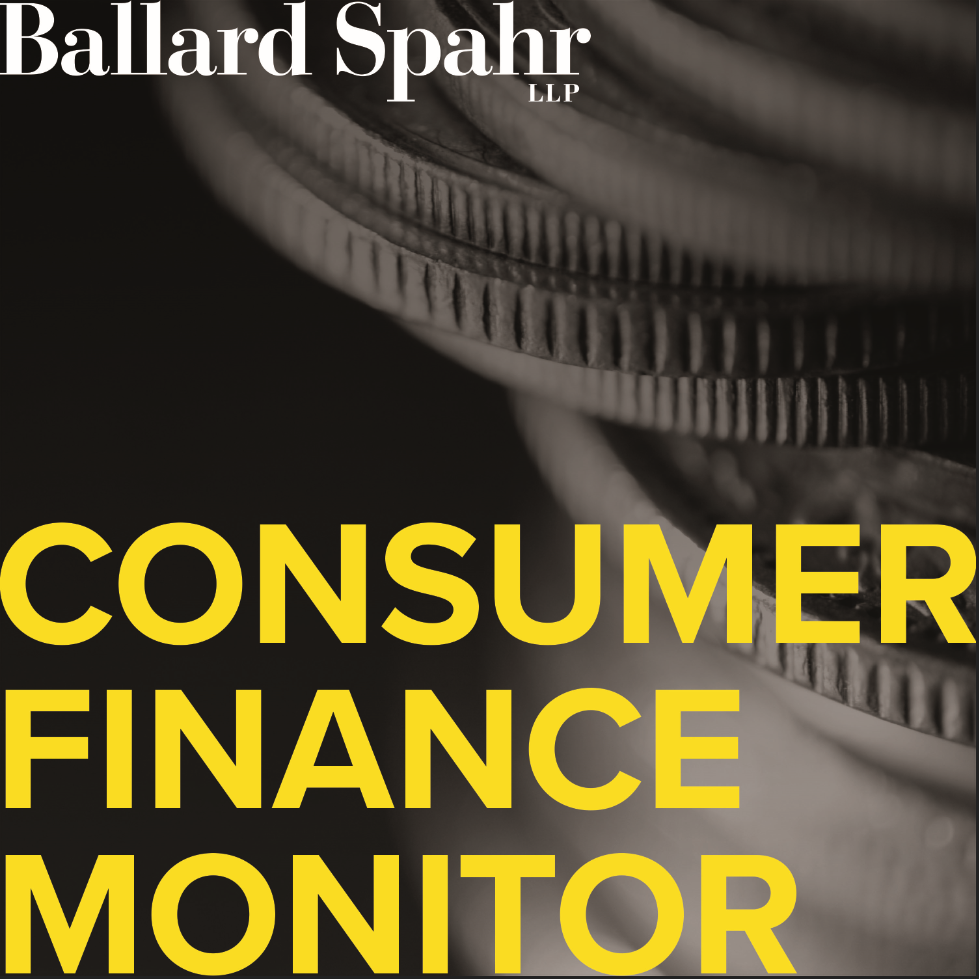
Consumer Finance MonitorA Sea Change in New York Consumer Protection Law: Inside the FAIR ActIn the episode of the Consumer Finance Monitor podcast we are releasing today, we examine what may be the most consequential development in New York consumer protection law in nearly half a century: the enactment of the New York State Fair Business Practices Act (the FAIR Act). Signed into law in December 2025 and taking effect on February 17, 2026, the FAIR Act represents the first comprehensive overhaul of New York General Business Law § 349 in almost 50 years. Long focused primarily on deceptive acts and practices, Section 349 has now been expanded to expressly prohibit unfair and abusive business practices as well—bri...
2026-02-121h 01
Consumer Finance MonitorEarned Wage Access in the Crosshairs of the Center for Responsible LendingIn this episode of the Consumer Finance Monitor Podcast, we examine one of the most closely watched and increasingly controversial developments in consumer finance: earned wage access (EWA) products. EWA products allow workers to access a portion of wages they have already earned before their scheduled payday. Proponents describe these products as a valuable financial tool that helps consumers manage cash-flow shortfalls without resorting to traditional payday loans. Critics, including the Center for Responsible Lending (CRL), argue that EWA products function as high-cost credit, often involving opaque fees that can trap consumers in cycles of debt.
2026-01-2955 min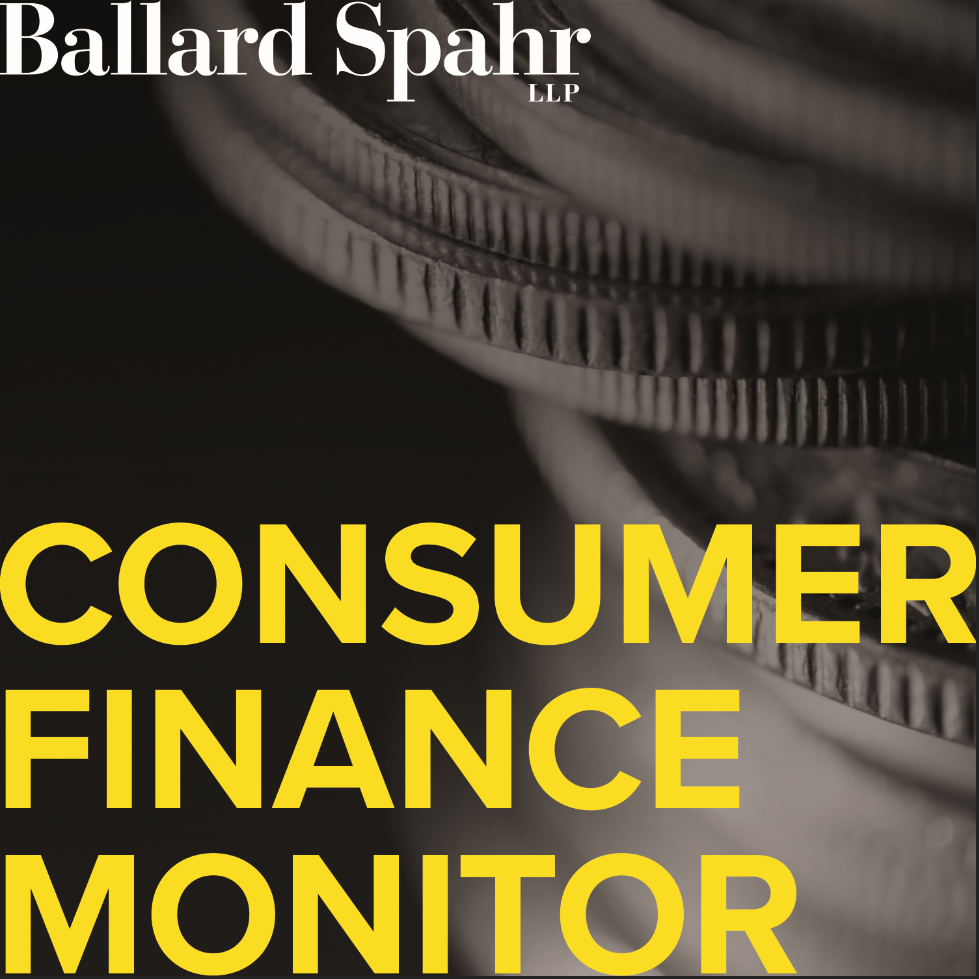
Consumer Finance MonitorBreaking Developments in National Bank Act PreemptionOur podcast show this week consists of a webinar we produced on November 10, 2025, titled, "Breaking Developments in National Bank Act Preemption." Join our panel of top legal experts as they break down how landmark court rulings are changing the rules for national banks, examine the growing application of state law, and discuss what these changes mean for compliance, risk, and the future of consumer financial services. Meet the Panelists: · Alan Kaplinsky (Host & Moderator): Senior Counsel and former Practice Group Leader and Founder of the Consumer Financial Services Group at Ballard Spahr · Professor Arthur Wilmarth: Professor Emeritus at Geo...
2026-01-221h 21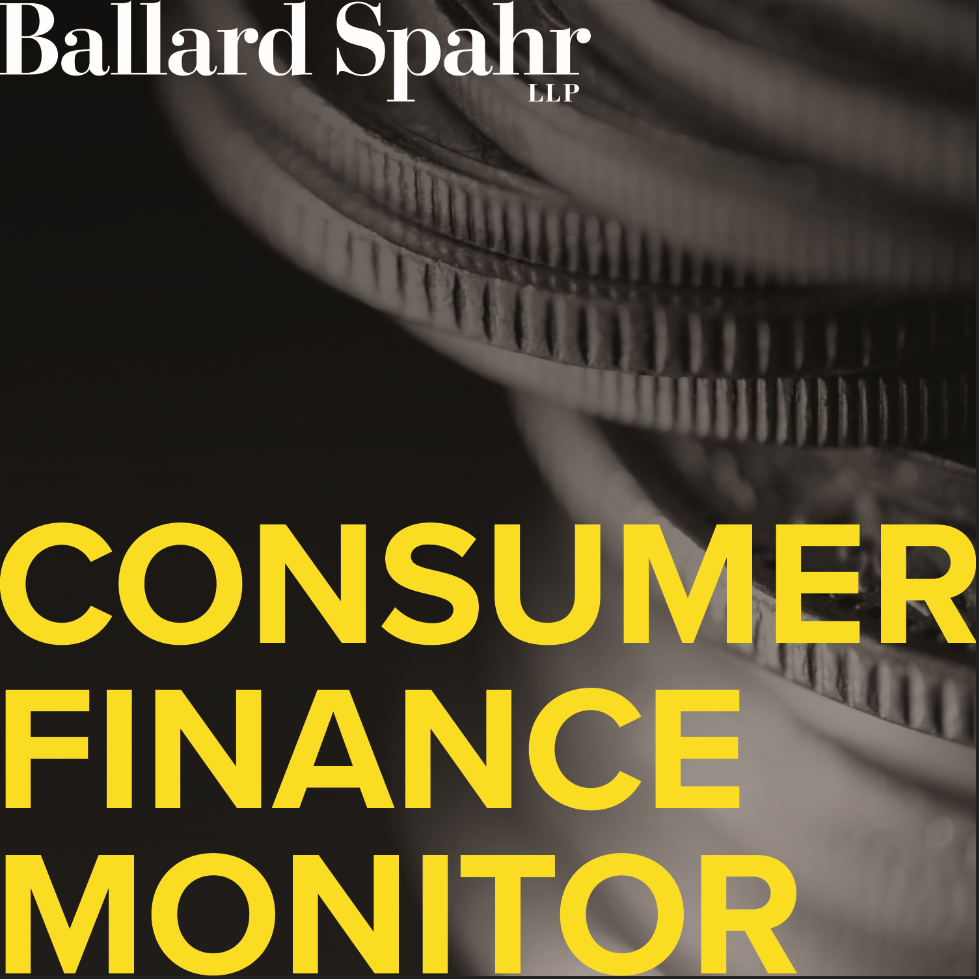
Consumer Finance MonitorBSA/AML Priorities Under a New AdministrationJoin us for a timely and insightful conversation on the evolving landscape of anti-money laundering (AML) compliance in consumer financial services. In this episode of the Consumer Finance Monitor Podcast, Alan Kaplinsky, founder and senior counsel of Ballard Spahr's Consumer Financial Services Group, hosts Terence Grugan, co-chair of Ballard Spahr's AML team and a recognized authority in financial crimes compliance. Together, they deliver a comprehensive discussion on the latest regulatory developments, enforcement trends, and strategic implications for institutions across the industry. Episode Overview and Key Takeaways: 1. Regulatory Streamlining: Explore how AML and Bank Secrecy Act...
2026-01-1534 min
Consumer Finance MonitorThe Future of Shareholder Arbitration in Light of SEC's New Policy StatementThis week on the award-winning Consumer Finance Monitor Podcast, host Alan Kaplinsky is joined by Senior Counsel Mark Levin and special guest Professor Mohsen Manesh for a powerful roundtable on one of today's most consequential topics: the SEC's new position on mandatory arbitration in corporate governance documents and how state law and market realities are shaping the future for consumer financial services companies, investors, and legal counsel. Meet the Speakers: Alan Kaplinsky - Host and Senior Counsel at Ballard Spahr's Consumer Financial Services Group, Alan brings decades of expertise in arbitration and class action waivers to...
2026-01-081h 19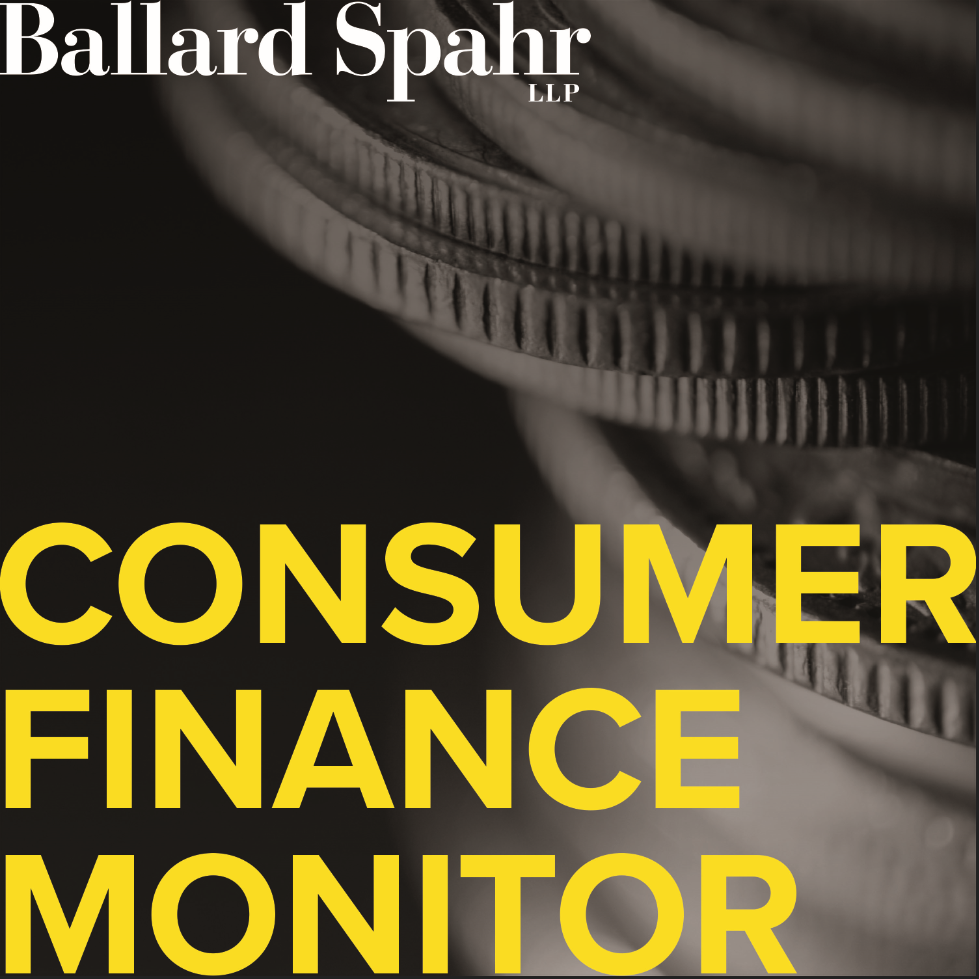
Consumer Finance MonitorSignificant 2025 Deregulatory Developments in Banking LawJoin host Alan Kaplinsky, founder and former longtime leader of Ballard Spahr's Consumer Financial Services Group and one of the foremost thought leaders in the industry, as he welcomes two special guests for a timely and insightful conversation about the most significant deregulatory developments in banking law during 2025. Alan is joined by his Ballard Spahr colleague Scott Coleman, a partner with more than 30 years of experience guiding banks and bank holding companies through mergers, acquisitions, and all facets of regulatory compliance, especially in the community banking sector. They're also joined by Dr. Sean Campbell, Chief Economist and...
2025-12-311h 15
Consumer Finance MonitorThe CFPB's Most Ambitious Regulatory Agenda Ever – Part 2Today's episode features Part 2 of our November 4 webinar, "The CFPB's Most Ambitious Regulatory Agenda Ever." (Part 1 of this series was released on December 18. We encourage you to listen to that episode as well). In Part 2, we continue to unpack the far-reaching implications of the Consumer Financial Protection Bureau's (CFPB) regulatory ambitions. The CFPB has published a sweeping agenda that promises to reshape the landscape for consumer financial services, and our panel of seasoned attorneys offers vital context and actionable insights for industry professionals, regulators, and informed consumers alike. Key Topics Discussed: · CFPB's Pre-Rule and Long-Term A...
2025-12-2346 min
Consumer Finance MonitorThe CFPB's Most Ambitious Regulatory Agenda Ever – Part 1Today's episode features Part 1 of our November 4 webinar, "The CFPB's Most Ambitious Regulatory Agenda Ever." In this packed episode, our expert panel breaks down the Consumer Financial Protection Bureau's largest and boldest regulatory agenda to date. Discussing an unprecedented lineup of 24 rulemaking items that could reshape the consumer financial services industry. What's Included: Unprecedented Regulatory Activity: We unpack why this semi-annual agenda stands out, the record number of proposed rules, and what this means for financial institutions, FinTechs, and consumers alike. Hot Topics Covered: From sweeping changes in mortgage servicing to open banking (1033 of...
2025-12-1845 min
Consumer Finance MonitorThe CFPB's Reg B Proposal: Key Changes and Industry ImpactToday's podcast brings listeners a timely and insightful discussion as our panel examines the CFPB's proposed amendments to Regulation B under the Equal Credit Opportunity Act (ECOA). As our regular listeners know, we released an episode yesterday, and we are providing this additional special episode in light of a development we consider both time-sensitive and exceptionally important. The discussion is hosted by Alan Kaplinsky, Senior Counsel, founder and former chair for 25 years of Ballard Spahr's Consumer Financial Services Group, and features these distinguished experts in the field: · Bradley Blower, Founder of Inclusive Partners LLC. · ...
2025-12-111h 07
Consumer Finance MonitorAI in Financial Services: Understanding the White House Action Plan – and What It Leaves Out – Part 2Today's episode features Part 2 of our October 30, 2025 webinar, "AI in Financial Services: Understanding the White House Action Plan – and What It Leaves Out." In this installment, our panel dives deeper into the evolving intersection of artificial intelligence, regulation, and innovation in financial services. Moderated by Alan Kaplinsky, Senior Counsel, founder and former longtime leader of Ballard Spahr's Consumer Financial Services Group, and Greg Szewczyk, chair of the firm's Privacy and Data Security Group, the discussion cuts through hype and uncertainty to provide clear, practical insights. Alan and Greg lead a lively discussion exploring the practical and policy-driven ch...
2025-12-1048 min
Consumer Finance MonitorAI in Financial Services: Understanding the White House Action Plan – and What It Leaves Out – Part 1Today's episode features Part 1 of our October 30, 2025 webinar, "AI in Financial Services: Understanding the White House Action Plan – and What It Leaves Out." In this installment, a panel of leading experts breaks down the rapidly evolving role of artificial intelligence in financial services—from foundational concepts to the latest regulatory developments. Moderated by Alan Kaplinsky, Senior Counsel, founder and former longtime leader of Ballard Spahr's Consumer Financial Services Group, and Greg Szewczyk, chair of the firm's Privacy and Data Security Group, the discussion cuts through hype and uncertainty to provide clear, practical insights. Alan and Greg guide an ener...
2025-12-0436 min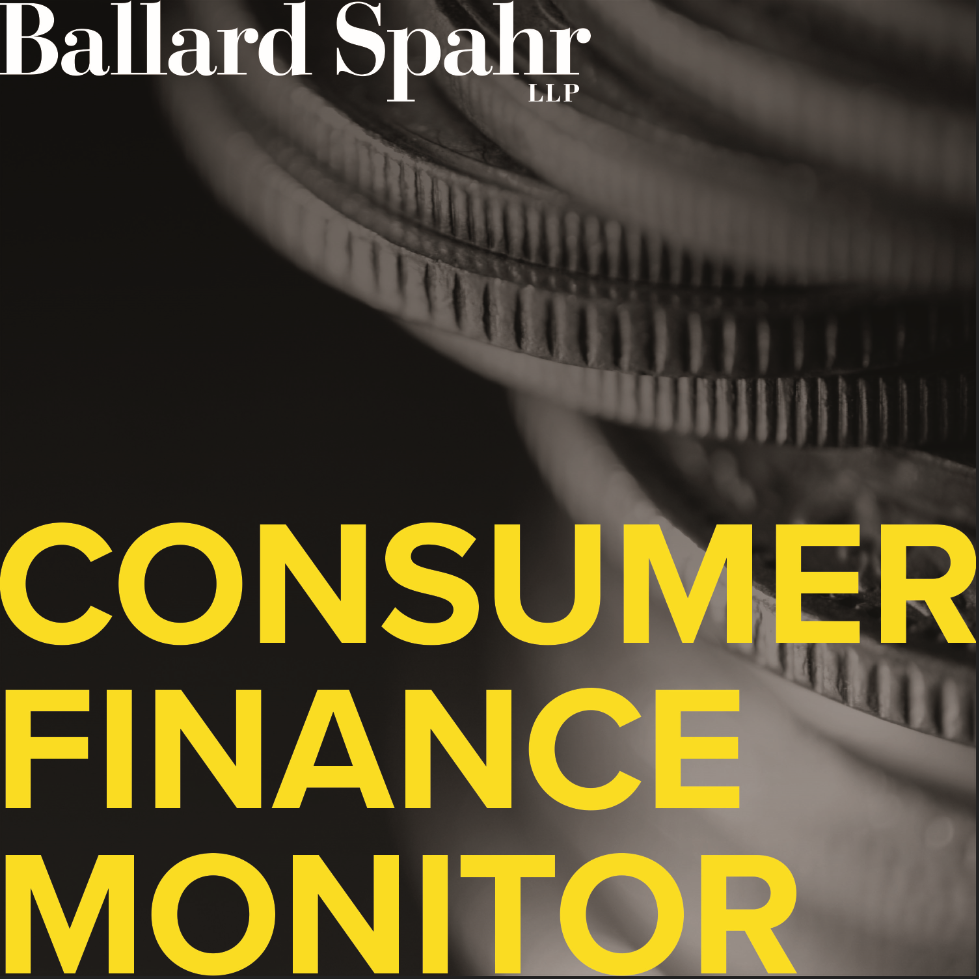
Consumer Finance MonitorOpportunities in the Solar Finance Industries Despite Trump 2.0Step into the intersection of consumer finance law and the solar energy industry with host Alan Kaplinsky, senior counsel at Ballard Spahr, and special guest Steven Burt, attorney and former public policy leader at major residential solar companies. In this episode, listeners will get an insider's look at today's solar landscape. Discover the key market segments, from utility-scale projects to commercial installations, community solar, and residential rooftop systems. Explore how recent shifts in federal policy under the Trump administration have changed energy priorities, from cancelling critical programs and phasing out residential solar tax credits, to redirecting support...
2025-11-2651 min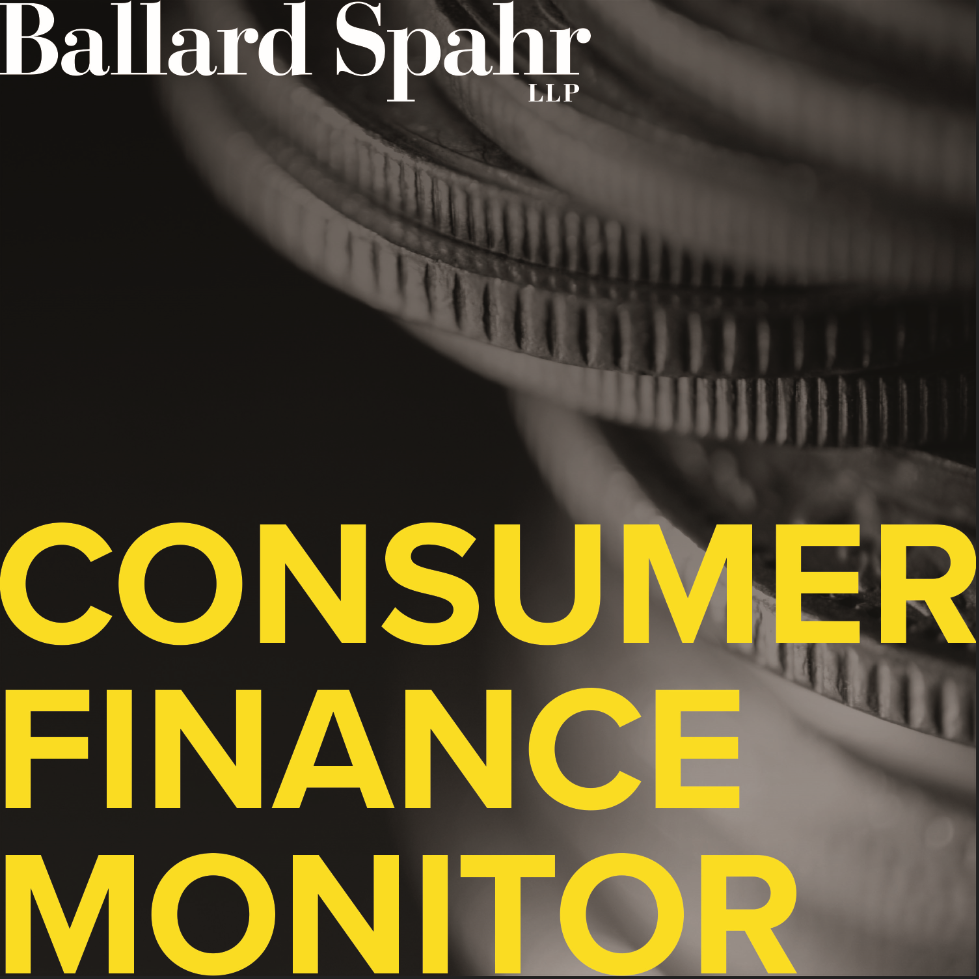
Consumer Finance MonitorFair Lending Developments Under Trump 2.0 – Part 2Today's episode marks the second of a two-part series, with Part One having been released on November 13th. In this installment, we continue our conversation on the many changes in fair lending policy and enforcement under the second Trump administration. The discussion is moderated by Alan Kaplinsky, Senior Counsel, founder and former chair for 25 years of Ballard Spahr's Consumer Financial Services Group, and features these distinguished experts in the field: Bradley Blower, Founder of Inclusive Partners LLC. John Culhane, Jr., Senior Partner and charter member of Ballard Spahr's fair lending team. Richard Andreano, Jr., Practice Group Le...
2025-11-2045 min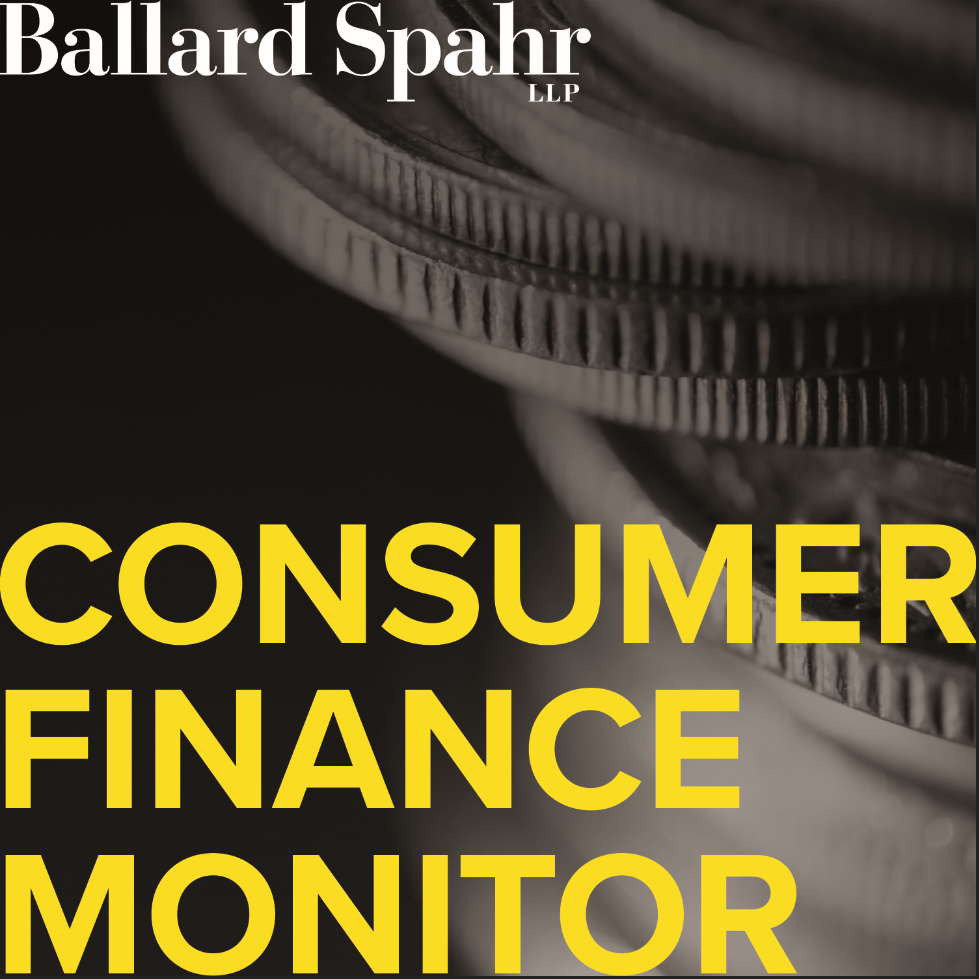
Consumer Finance MonitorFair Lending Developments Under Trump 2.0 – Part 1Today's episode marks the first of a two-part series, with Part Two scheduled for release on November 20th. In this installment, we examine the sweeping changes in fair lending policy and enforcement under the second Trump administration. The discussion is moderated by Alan Kaplinsky, Senior Counsel, founder and former chair for 25 years of Ballard Spahr's Consumer Financial Services Group, and features these distinguished experts in the field: Bradley Blower, Founder of Inclusive Partners LLC. John Culhane, Jr., Senior Partner and charter member of Ballard Spahr's fair lending team. Richard Andreano, Jr., Practice Group Leader for Ballard...
2025-11-1341 min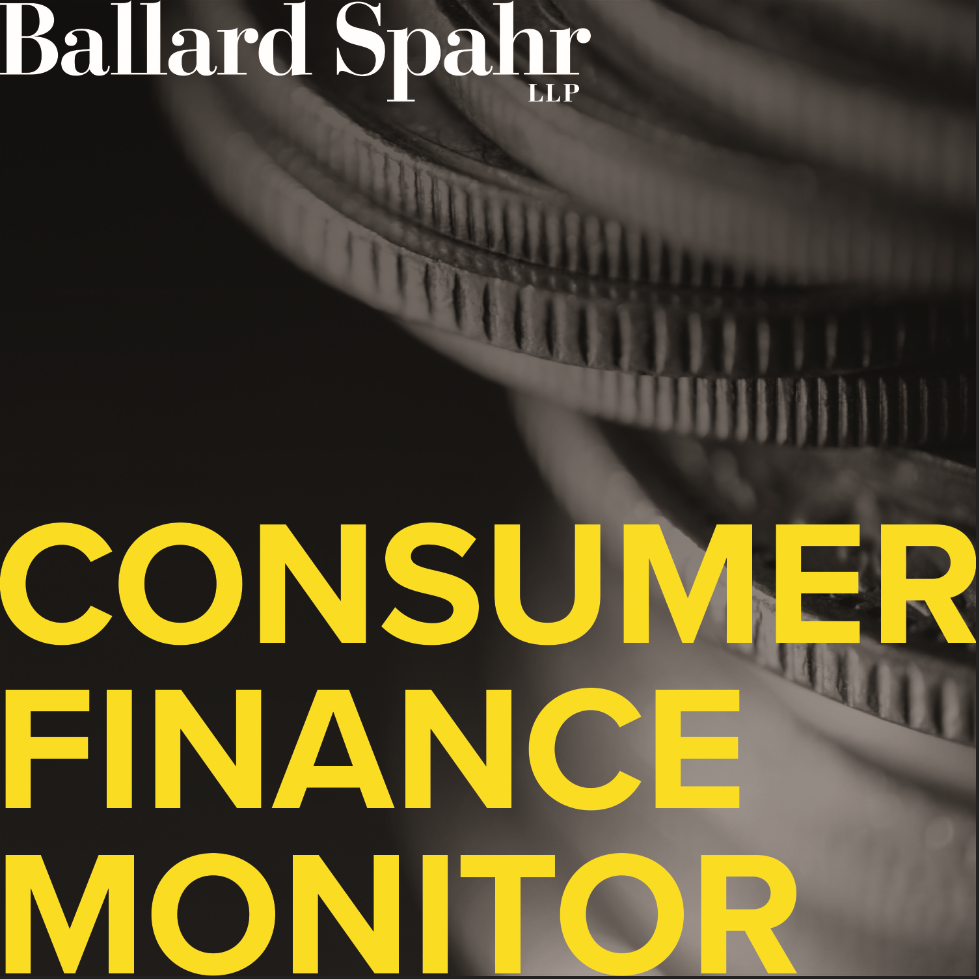
Consumer Finance MonitorThe GENIUS Act and the Future of Stablecoins: What Banks and Fintechs Need to Know - Part 1Today's podcast features the first part of a recent webinar produced on September 3, 2025, which examined the key provisions of the GENIUS Act ("The Guiding and Establishing National Innovation for U.S. Stablecoins Act") and its regulatory impact on banks, fintechs and the future of stablecoins. The discussion covers critical definitions, licensing, oversight and enforcement requirements, the relationship to state stablecoin laws. Panelists offer insights into the role of federal banking regulators such as the Comptroller of the Currency, the Federal Reserve, and the Financial Stability Oversight Council ("FSOC"), highlighting the Act's efforts to establish a uniform regulatory framework and...
2025-10-1641 min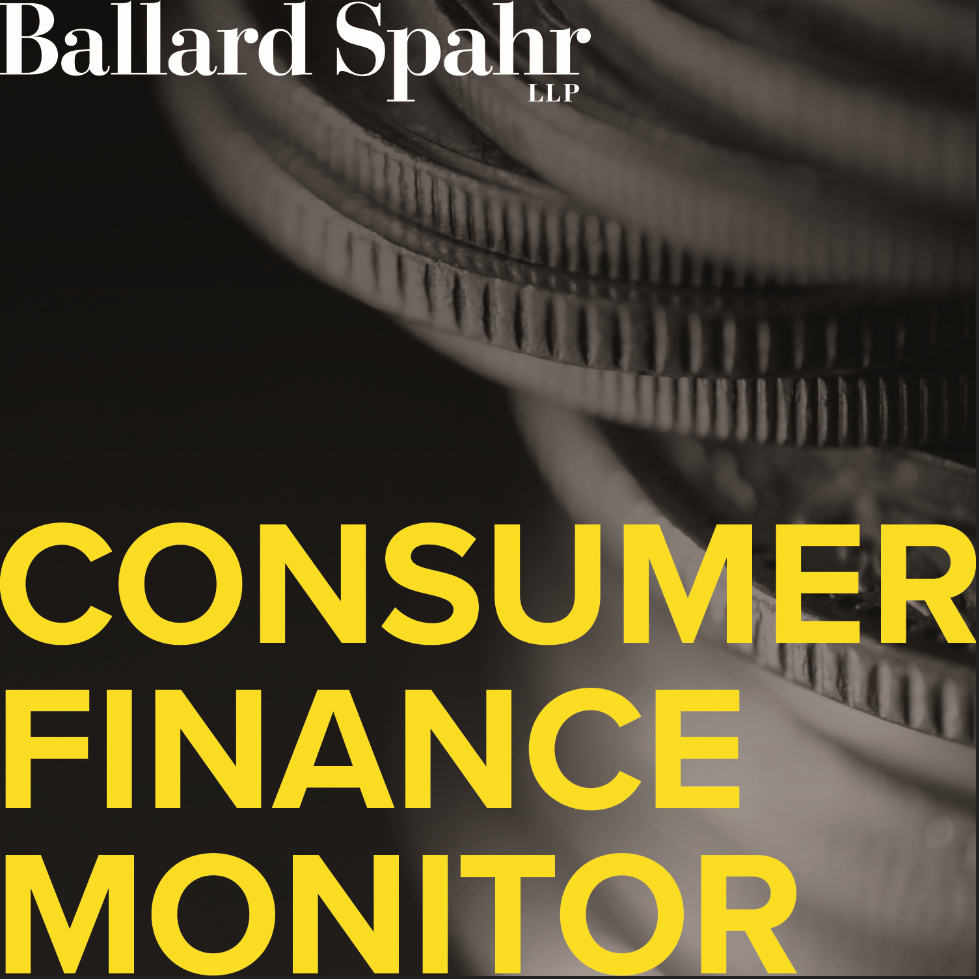
Consumer Finance MonitorThe Supreme Court's Landmark Ruling on Universal Injunctions in the Birthright Citizenship Cases - Part 1 The podcast show we are releasing today is a repurposing of part 2 of a webinar we produced on August 13, 2025, which explored the U.S. Supreme Court's pivotal 6-3 decision in Trump v. CASA, Inc., a ruling that significantly curtails the use of nationwide or "universal" injunctions. A universal injunction is one which confers benefits on non-parties to the lawsuit. This case marks a turning point in federal court jurisprudence, with profound implications for equitable relief, national policy, and governance. Our distinguished panel of legal scholars, Suzette Malveaux (Roger D. Groot Professor of Law, Washington and Lee University...
2025-10-0253 min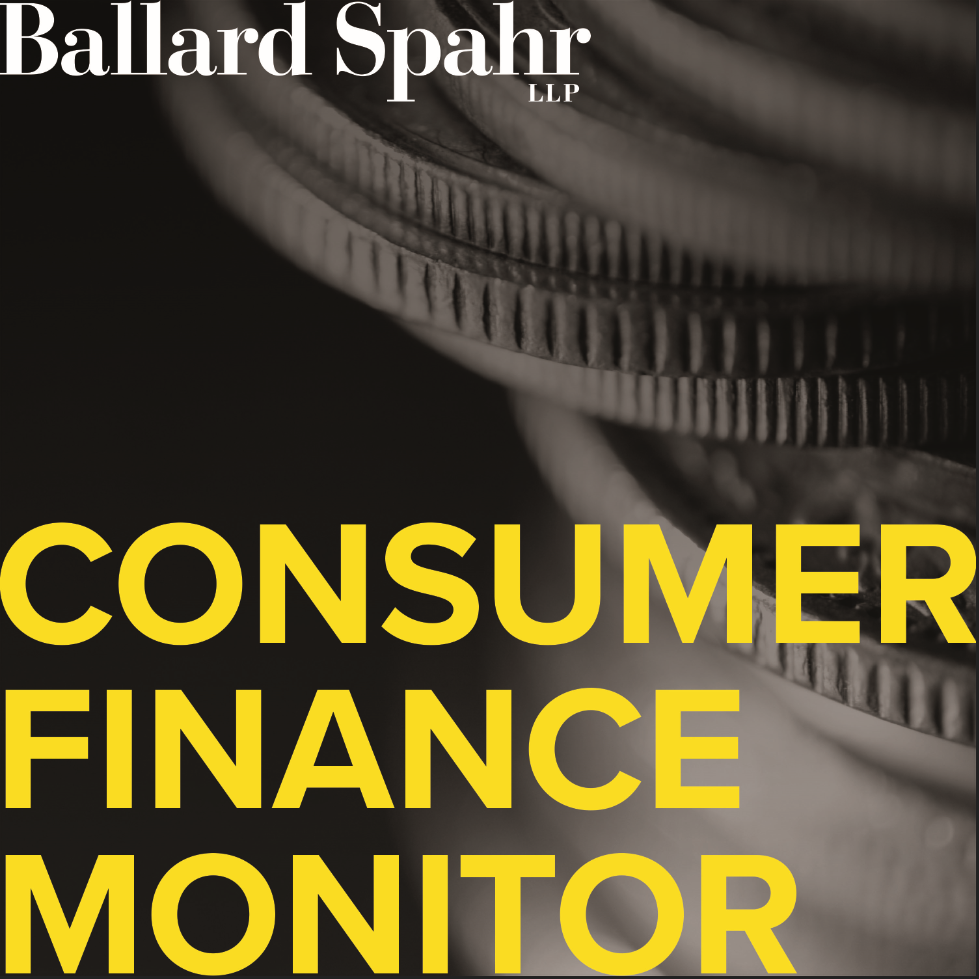
Consumer Finance MonitorThe Supreme Court's Landmark Ruling on Universal Injunctions in the Birthright Citizenship Cases - Part 1The podcast show we are releasing today is a repurposing of part 1 of a webinar we produced on August 13, 2025, which explored the U.S. Supreme Court's pivotal 6-3 decision in Trump v. CASA, Inc., a ruling that significantly curtails the use of nationwide or "universal" injunctions. A universal injunction is one which confers benefits on non-parties to the lawsuit. This case marks a turning point in federal court jurisprudence, with profound implications for equitable relief, national policy, and governance. Our distinguished panel of legal scholars, Suzette Malveaux (Roger D. Groot Professor of Law, Washington and Lee University...
2025-09-2549 min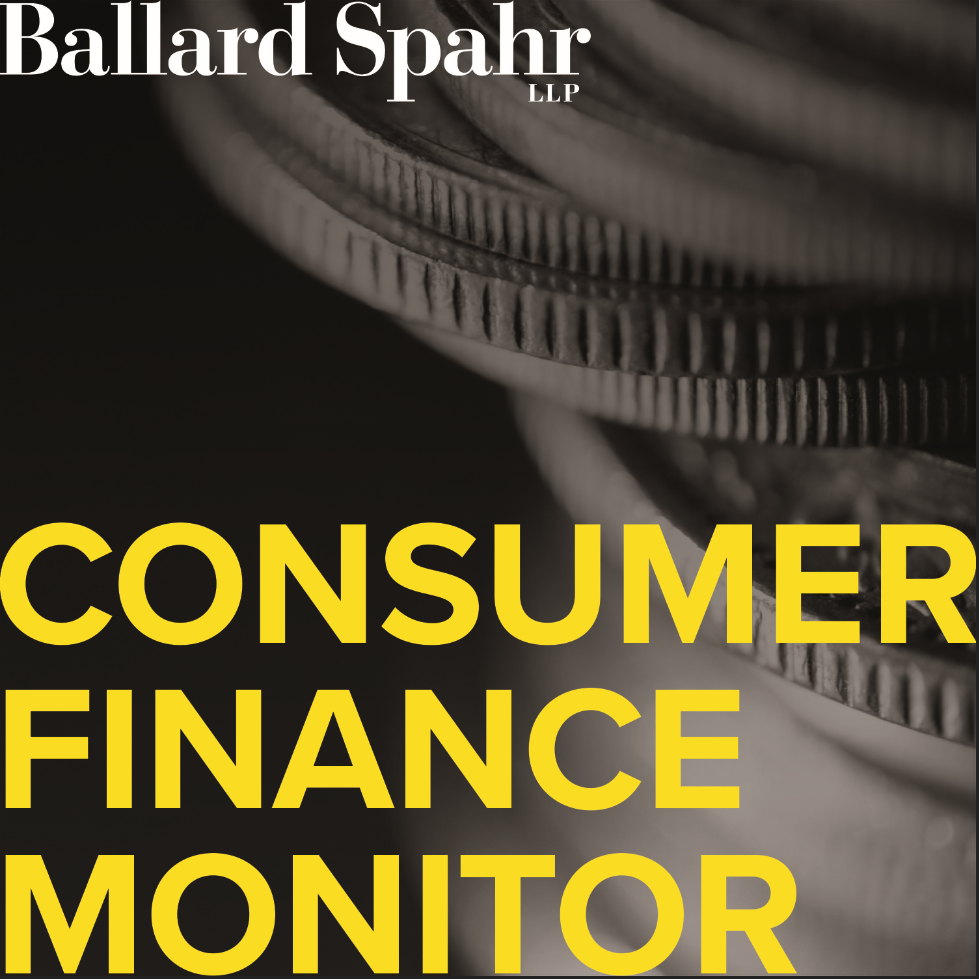
Consumer Finance MonitorNew Consumer Financial Services Fintech Business Opportunities Arising from Deregulation at the CFPB during Trump 2.0 – Part 2Today's podcast episode is a continuation of a previous repurposed webinar held on August 12th, focusing on emerging opportunities in the consumer financial services sector under the Trump administration. The session aims to provide insights into the evolving regulatory landscape and its implications for businesses and consumers. The first part of the webinar, released last Thursday, September 4, covered the recently-passed GENIUS Act (which creates a federal infrastructure for Stablecoin); developments in crypto-backed lending and credit builder loans; the mortgage industry; developments in earned wage access and rent-to-own and lease-to-own financing products; and insights on income share agreements. Joining the p...
2025-09-1145 min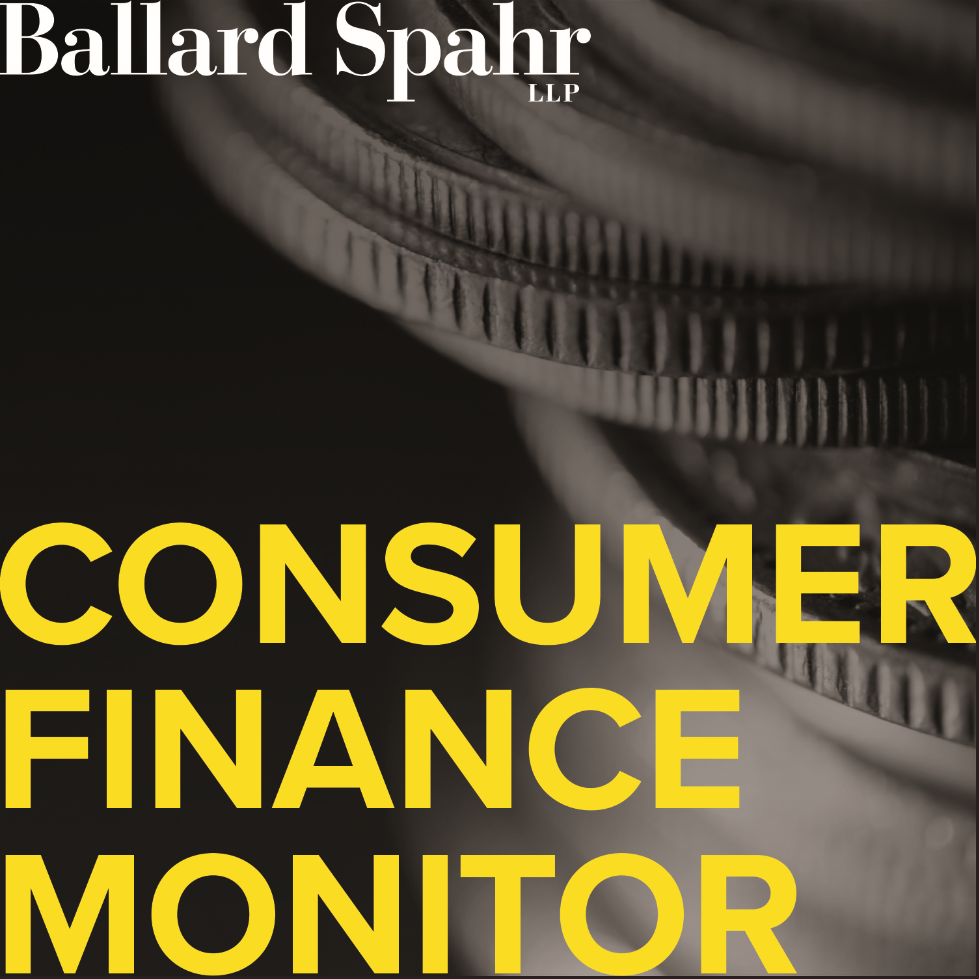
Consumer Finance MonitorNew Consumer Financial Services Fintech Business Opportunities Arising from Deregulation at the CFPB during Trump 2.0 – Part 1In the latest episode of our podcast, we explore the significant shifts in the regulatory landscape under the second Trump administration and how these recent deregulatory actions have opened new pathways for banks and FinTech companies by reducing barriers to entry and compliance costs. This evolving environment presents opportunities for innovation and market expansion, although state law oversight, including licensing and regulatory requirements. Today's episode is part one of a two-part series. Joining the podcast today are the following members of Ballard Spahr's Consumer Financial Services Group: Kristen Larson, of counsel, provides insights into the recently-passed GENIUS A...
2025-09-0439 min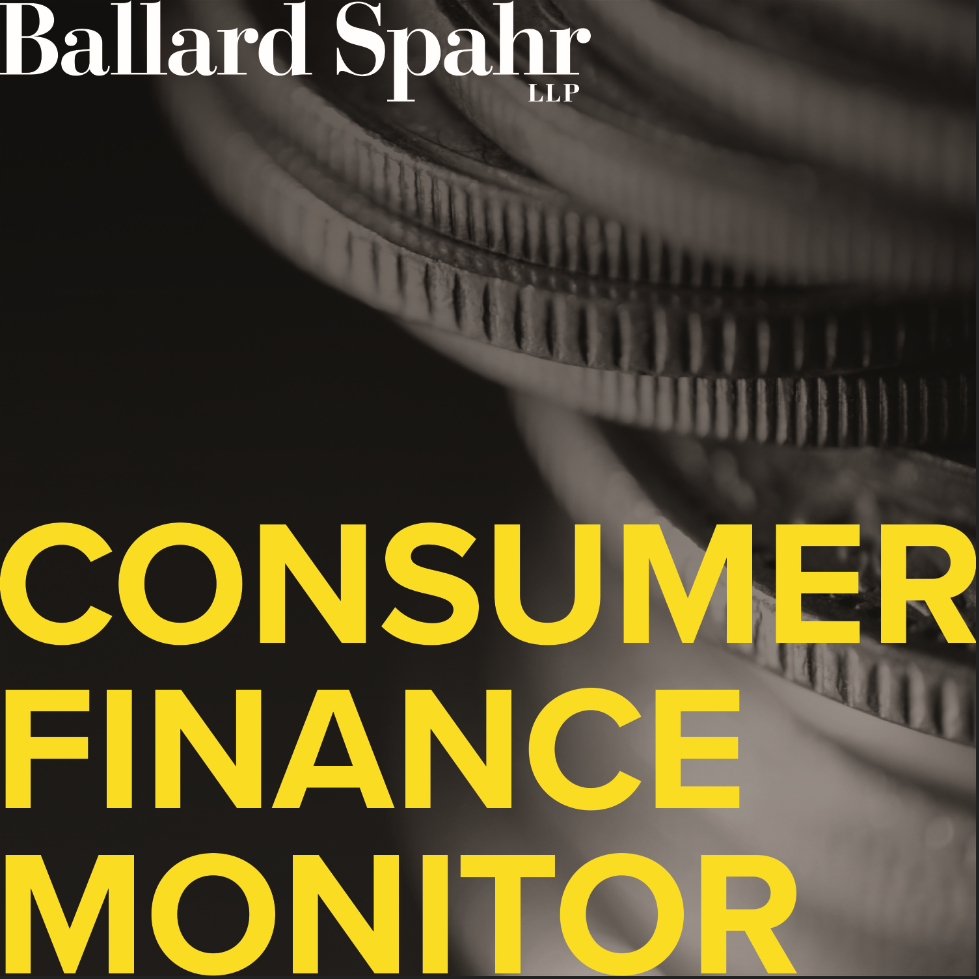
Consumer Finance MonitorDo Arbitrators Follow the Law? A New Study Provides Data, But the Debate ContinuesToday's episode of the Consumer Finance Monitor podcast is centered around a novel and thought-provoking article by David Horton, a professor of law at the University of California, Davis. The article, titled "Do Arbitrators Follow the Law? Evidence from Clause Construction," dives into the intriguing question of whether arbitrators render decisions that align with judicial rulings. Horton explores the longstanding debate on arbitration's adherence to legal standards, focusing on whether arbitrators have followed the Supreme Court's 2019 decision in Lamps Plus, Inc. v. Varela (2019) that class-wide arbitration is not permitted when an arbitration clause is silent or ambiguous on the ma...
2025-08-2149 min
Consumer Finance MonitorThe Legality of Trump's Terminations Without Cause of Members and Commissioners of Federal "Independent" AgenciesToday's episode of the Consumer Finance Monitor podcast offers an in-depth analysis of the unitary executive theory and its implications for terminations by President Trump of the Democratic members/commissioners of several so-called independent Federal agencies. The episode features Lev Menand, an associate professor of law at Columbia Law School, who provides expert insights into financial institutions and administrative law and the validity of the Trump terminations. Professor Menand discusses the theory that President Trump may exercise complete control over independent federal agencies (which includes such terminations), despite statutes which permit terminations only for cause and a 1935 Supreme Court o...
2025-08-0753 min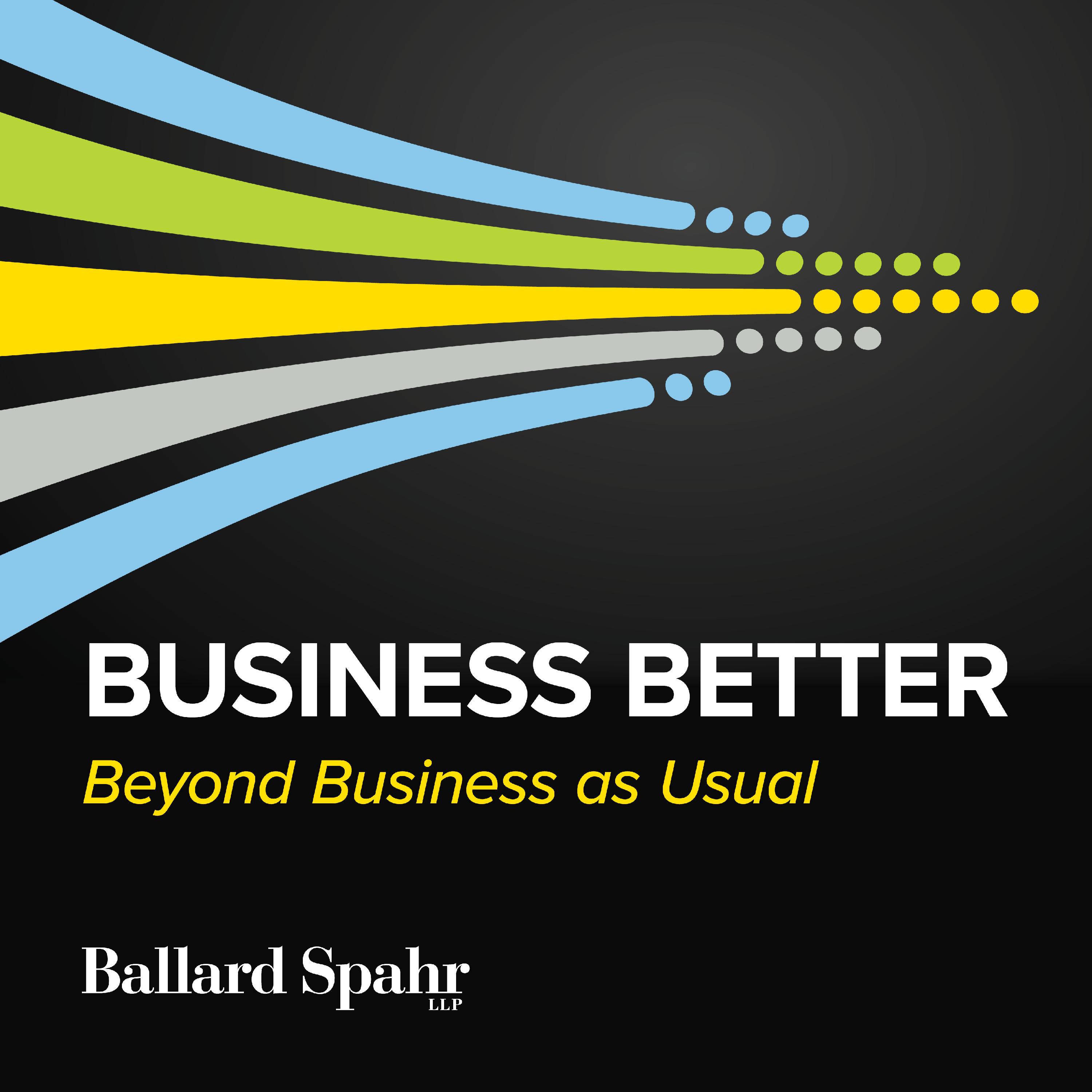
Business BetterSustainability Spotlight – A Conversation With Chart Industries, Inc.This episode is part of our Sustainability Spotlight series, which highlights the sustainability efforts that businesses are making to combat climate change and other environmental challenges. This episode features a discussion with John Walsh, Senior Vice President of Investor and Government Relations, and Ali Snyder, Director of Sustainability and Marketing at Chart Industries, Inc. Chart Industries, Inc. is a global leader in the design, engineering, and manufacturing of process technologies and equipment for gas and liquid molecule handling for the Nexus of Clean™ — clean power, clean water, clean food, and clean industrials, regardless of molecule. The company’s uniq...
2025-05-2734 min
Business BetterBridging Campuses: Legal Insights on Education Industry Consolidation – Labor, Employment, and BenefitsThis episode is part of our “Bridging Campuses: Legal Insights on Education Industry Consolidation” series, where we discuss trends in higher education consolidation and closures, and outline common characteristics of at-risk institutions. In today’s episode, we consider the importance of advanced planning in relation to labor, employment, and benefits, to comply with legal obligations and navigate obstacles. We discuss unionization and collective bargaining agreements, the risks of failing to properly administer employee benefit plans, and the differences between affiliations and mergers in terms of the impact on employee benefit plans. Bill Rhodes, a partner and le...
2025-05-0733 min
Business BetterBridging Campuses: Legal Insights on Education Industry Consolidation – Privacy and Data SecurityThis episode is part of our “Bridging Campuses: Legal Insights on Education Industry Consolidation” series, where we discuss trends in higher education consolidation and closures, and outline common characteristics of at-risk institutions. In today’s episode, we discuss rapidly evolving state privacy laws, and compliance regulations such as FERPA and GLBA, that are creating a complex landscape in higher education. We also consider post-consolidation integration challenges, as new cybersecurity requirements need to be implemented across combined organizations. Laura Giles, a partner in Ballard Spahr’s Mergers and Acquisitions Group and a member of the Education Team, ho...
2025-04-3014 min
Business BetterBridging Campuses: Legal Insights on Education Industry Consolidation - Intellectual PropertyThis episode is part of our “Bridging Campuses: Legal Insights on Education Industry Consolidation” series, where we discuss trends in higher education consolidation and closures, and outline common characteristics of at-risk institutions. In today’s episode, we focus on intellectual property developed at and managed by systems of higher education. We discuss how universities can best manage and leverage their portfolios, including intellectual property assets that they can package together to optimize and increase value of these assets. We also review federal funding and policies that could impact universities, such as potential changes to Bayh-Dole and diversity initia...
2025-04-2318 min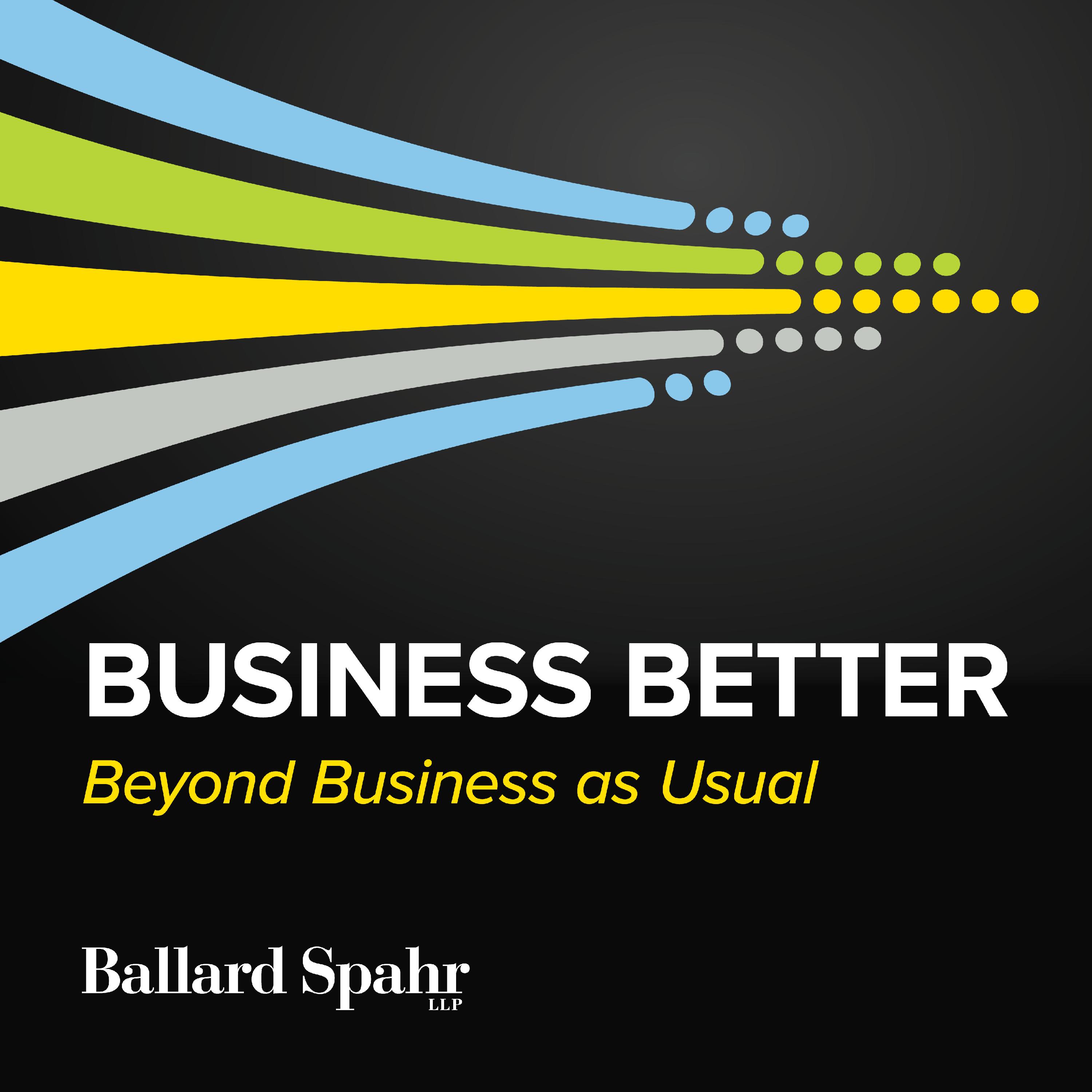
Business BetterManufacturing Moment: How State Associations Navigate the Policy LandscapeThis episode is part of our “Manufacturing Moment” series, where we discuss important developments in the manufacturing space, and provide insight on how these major changes will affect the industry. In today’s episode, we’re joined by two special guests; Michele Siekerka, President and CEO of the New Jersey Business & Industry Association, and Angela Wilhelms, President and CEO of Oregon Business & Industry. We discuss the manufacturing landscape in their respective states; including providing data driven research in the policy-making processes, the complexities of navigating federal, state, and local regulations, and perspectives on the new administration’s executive...
2025-04-2229 min
Consumer Finance MonitorEverything You Want to Know About the CFPB as Things Stand Today, and Lots More - Part 2Our podcast show being released today is part 2 of a repurposed interactive webinar that we presented on March 24 featuring two of the leading journalists who cover the CFPB - Jon Hill from Law360 and Evan Weinberger from Bloomberg. Our show begins with Tom Burke, a Ballard Spahr consumer financial services litigator, describing in general terms the status of the 38 CFPB enforcement lawsuits that were pending when Rohit Chopra was terminated. The cases fall into four categories: (a) those which have already been voluntarily dismissed with prejudice by the CFPB; (b) those which the CFPB has notified the...
2025-04-1752 min
Business BetterBridging Campuses: Legal Insights on Education Industry Consolidation - Public FinanceThis episode is part of our “Bridging Campuses: Legal Insights on Education Industry Consolidation” series, where we discuss trends in higher education consolidation and closures, and outline common characteristics of at-risk institutions. In today’s episode, we discuss financial challenges facing many colleges and universities, such as declining enrollment, decreased funding, and restrictions that are associated with tax-exempt financing. We consider the tax and legal implications of a merger or acquisition, and the liquidation of assets in the case of university closures. Laura Giles, a partner in Ballard Spahr’s Mergers and Acquisitions Group and a member...
2025-04-1635 min
Consumer Finance MonitorEverything You Want to Know About the CFPB as Things Stand Today and Lots More - Part 1Our podcast show being released today is Part 1 of a repurposed interactive webinar that we presented on March 24, featuring two of the leading journalists who cover the CFPB - Jon Hill from Law360 and Evan Weinberger from Bloomberg. Our show began with Jon and Evan chronicling the initiatives beginning on February 3 by CFPB Acting Directors Scott Bessent, Russell Vought and DOGE to shut down or at least minimize the CFPB. These initiatives were met with two federal district court lawsuits (one in DC brought by the labor unions who represents CFPB employees who were terminated and the...
2025-04-1051 min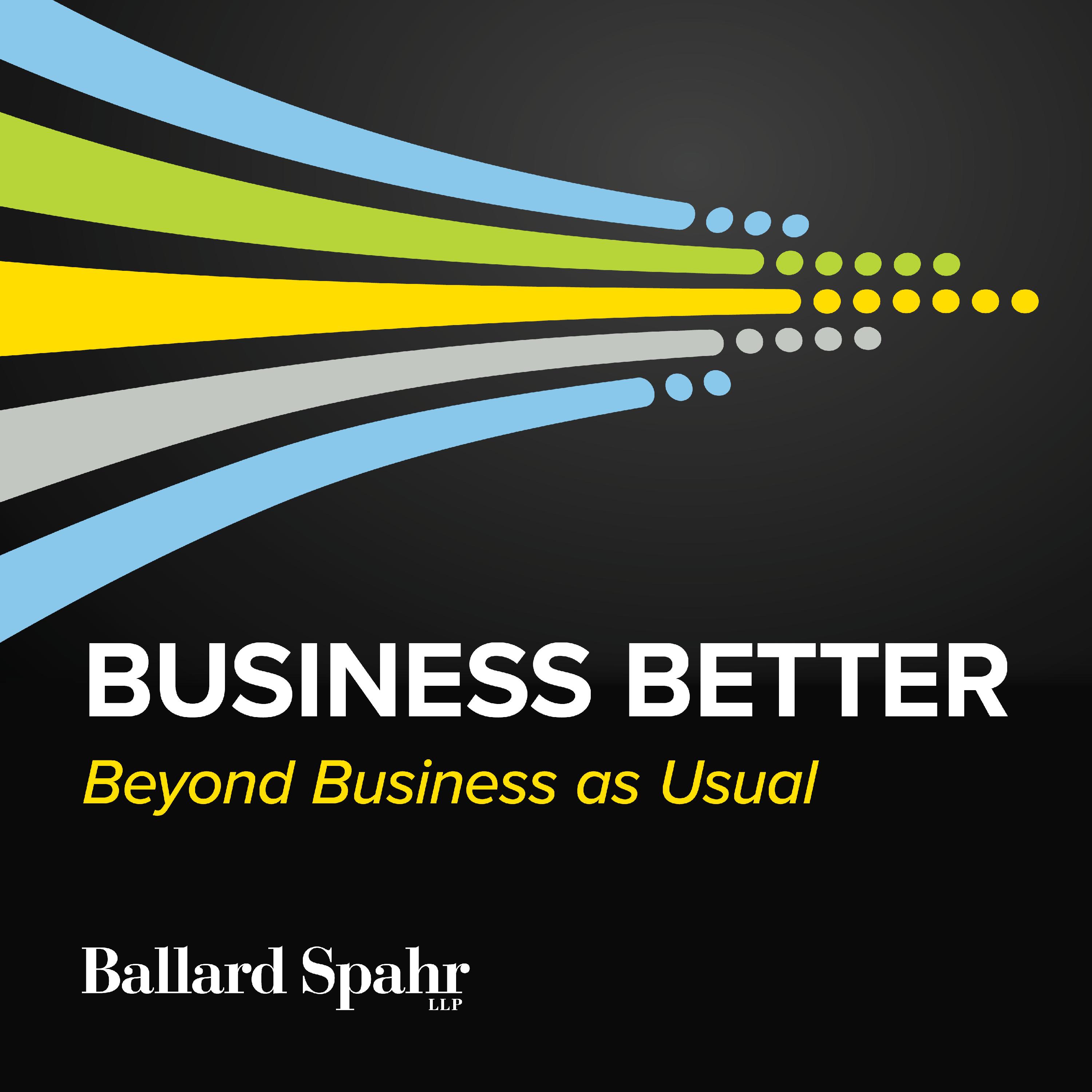
Business BetterBridging Campuses: Legal Insights on Education Industry Consolidation - Real Estate and TaxThis episode is part of our “Bridging Campuses: Legal Insights on Education Industry Consolidation” series, where we discuss trends in higher education consolidation and closures, and outline common characteristics of at-risk institutions. In today’s episode, we focus on real estate and tax in education consolidation. We discuss the value and marketability of excess real estate, and factors to consider in consolidation transactions such as zoning, historic preservation, and local real estate market dynamics. We also discuss tax issues, including transfer taxes, property tax exemptions, and more. Bill Rhodes, a partner and leader of Ballard Spahr’...
2025-04-0915 min
Consumer Finance MonitorA Deep Dive Into Judge Jackson's Preliminary Injunction Order Against CFPB Acting Director VoughtOur special podcast show today deals primarily with a 112-page opinion and 3-page order issued on March 28 by Judge Amy Berman Jackson of the U.S. District Court for the District of Columbia in a lawsuit brought, among others, by two labor unions representing CFPB employees against Acting Director Russell Vought. The complaint alleged that Acting Director Vought and others were in the process of dismantling the CFPB through various actions taken since Rohit Chopra was fired and replaced by Acting Director Scott Bessent and then Acting Director Russell Vought. This process included, among other things, the termination of...
2025-04-0455 min
Business BetterBridging Campuses: Legal Insights on Education Industry Consolidation – Mergers, Acquisitions, and AntitrustThis episode is part of our “Bridging Campuses: Legal Insights on Education Industry Consolidation” series, where we discuss trends in the consolidation and closures in higher education, and outline common characteristics of at-risk institutions. To kick-off this series, we focus on mergers and acquisitions, and antitrust considerations in the higher education industry. We explore obstacles that institutions face when considering consolidation, such as cultural and academic alignment, and regulatory approvals. We also discuss the impact of antitrust regulations, including changes to the Hart-Scott-Rodino filing requirements. Bill Rhodes, a partner and leader of Ballard Spahr’s Educat...
2025-04-0224 min
Business BetterAn Introduction to Bridging Campuses: Legal Insights on Education Industry ConsolidationThis episode is an introduction of our new series “Bridging Campuses: Legal Insights on Education Industry Consolidation,” where we will discuss trends in the consolidation and closures in higher education, and outline common characteristics of at-risk institutions. In today’s episode, we focus on key factors driving these trends, including declines in demographic and enrollment, and the outline the challenges institutions face in making difficult strategic decisions due to competing interests of various constituencies. Bill Rhodes, a partner and leader of Ballard Spahr’s Education Industry Team, and Laura Giles, a partner in Ballard Spahr’s Mergers...
2025-04-0113 min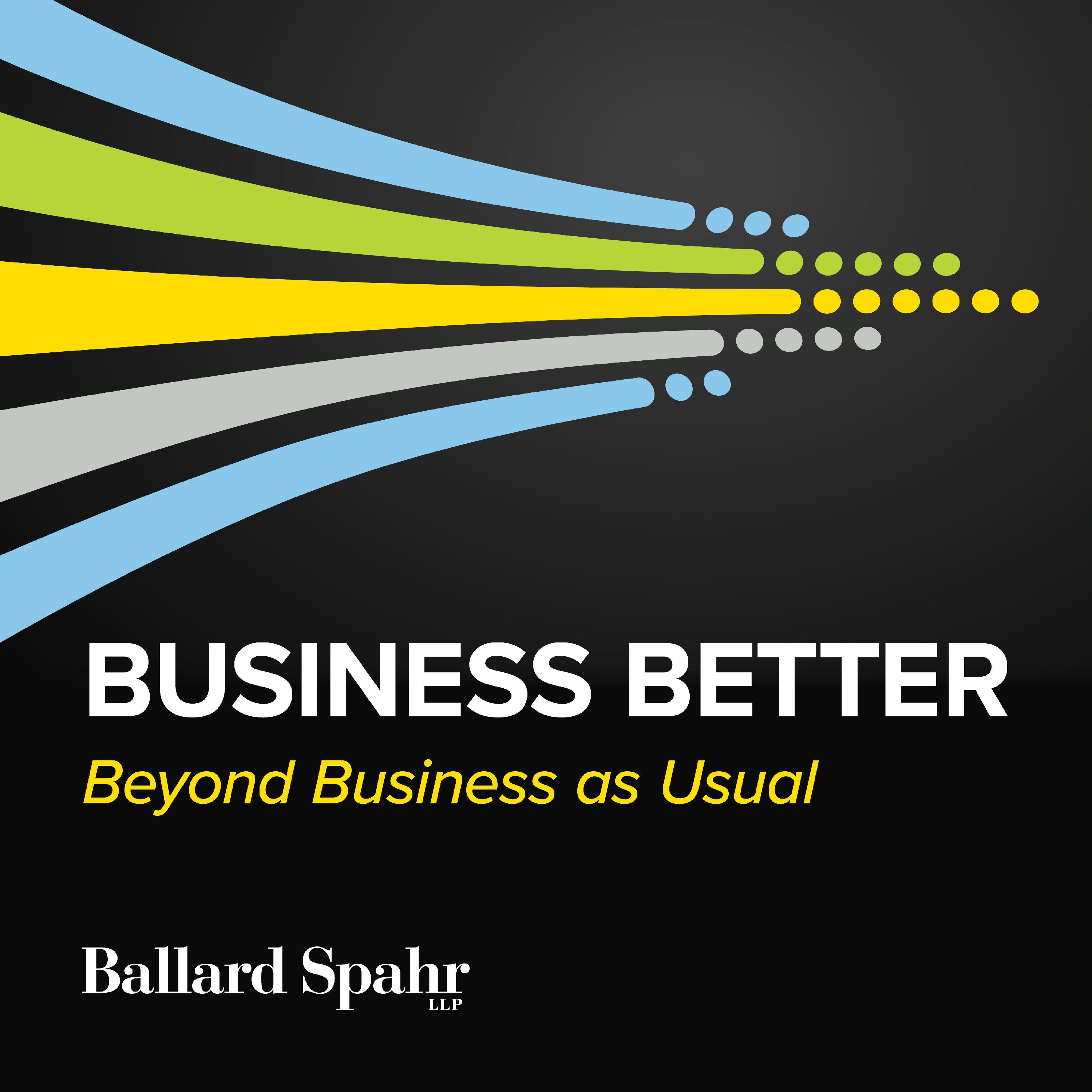
Business BetterManufacturing Moment: Manufacturers’ Priorities for the New AdministrationThis episode is part of our new series “Manufacturing Moment,” where we will discuss important developments in the manufacturing space, and provide insight on how these major changes will affect the industry. Today, we’re taking a look at the Trump administration and his manufacturing priorities. This episode features a discussion with Charles Crain, Managing Vice President of Policy at the National Association of Manufacturers (NAM). We discuss regulatory priorities, the Tax Cuts and Jobs Act, and preserving the benefits of the United States-Mexico-Canada Agreement (USMCA). Brendan K. Collins, a partner in Ballard Spahr’s Environm...
2025-03-2537 min
Consumer Finance MonitorThe Fall of The CFPB, The Rise of The State AGIn this episode of the Consumer Finance Monitor Podcast, Ballard Spahr partners Mike Kilgarriff and Joseph Schuster break down the seismic shifts in consumer financial regulation following the dramatic changes at the CFPB. With the Bureau's enforcement and supervisory activities on hold, state attorneys general are stepping in to fill the regulatory void. Mike and Joseph explore what this means for financial institutions, how businesses should navigate the evolving landscape, and the increasing role of state AGs in consumer protection enforcement. Tune in for insights on what's next in the world of financial regulation.
2025-02-1435 min
Consumer Finance MonitorWill the State Attorneys General and Other State Agencies Fill the Void Left by the CFPB?Today's podcast show is a repurposing of the second half of a webinar we produced on January 17, 2025. That webinar was Part 3 of our webinar series entitled "The Impact of the Election on the CFPB and Others." In Part 3, we focus on the role of state attorneys general in a rapidly shifting CFPB environment. Our previous podcast show, released on Tuesday February 11th, was a repurposing of the first half of our January 17th webinar in which Alan Kaplinsky had a "fireside chat" with Matthew J. Platkin, the New Jersey Attorney General. See here. The importance of Part 3...
2025-02-121h 05
Consumer Finance MonitorThe Impact of the Election on the CFPB: What to Expect with Supervision and Enforcement During Trump 2.0Our podcast show today features John Culhane and Mike Kilgarriff, partners in Ballard Spahr's Consumer Financial Services group. They discuss what supervision and enforcement will look like under a new acting director/director appointed by President Trump. This episode is a repurposing of the second half of a webinar that was produced on January 6. On January 23, we released the first half of the webinar, which consisted of Alan Kaplinsky's "fireside chat" with Kathy Kraninger, the former Director of the CFPB during Trump 1.0., linked here. With respect to supervision, we consider, among others, the following issues with respect...
2025-01-3041 min
Consumer Finance MonitorAlan Kaplinsky's "Fireside Chat" with Kathy Kraninger, Former Director of the CFPB During Trump 1.0Today's podcast episode is a repurposing of Alan Kaplinsky's "fireside chat" with Kathy Kraninger, the Director of the CFPB during the second half of President Trump's presidency from December 2018 until January 2021. (This was originally the first half of a webinar we did on January 6, 2025 which was entitled "The Impact of the Election on the CFPB - Supervision and Enforcement." The January 6 webinar is Part 2 of a 3-part series. Next Thursday, we will release the second half of that webinar which will feature Ballard Spahr partners, John Culhane and Mike Kilgariff, who will take a deep dive into the expected...
2025-01-231h 00
Consumer Finance MonitorThe CFPB's Proposed Data Broker Rule In today's episode, we discuss the CFPB's recent proposed data broker rule—a proposal that would greatly expand the reach of the Fair Credit Reporting Act. On December 3, the CFPB issued a proposed rule promoted as one that would require companies that sell data about income or financial tier, credit history, credit score or debt payments to comply with the Fair Credit Reporting Act. The proposal would make it clear that when data brokers sell certain sensitive consumer information, they are "consumer reporting agencies" under the FCRA. That would require them to comply with accuracy requirements. It al...
2025-01-161h 07
Consumer Finance MonitorThe Impact of the Election on the CFPB: What to Expect on Key Regulatory Issues During Trump 2.0Today's podcast episode is part two of our December 16th webinar, where we discussed the impact of the election on CFPB rulemaking. Part one consisted of a "fireside chat" with David Silberman, who held several senior-level positions at the CFPB for almost ten years under both Democratic and Republican administrations. In part two, Ballard Spahr partners John Culhane and Joseph Schuster address the following questions: 1. What will happen to CFPB regulations issued before January 20, such as the CFPB's credit card late fee rule, which is currently being challenged in a Texas federal court? 2. What will...
2025-01-0956 min
Consumer Finance MonitorAlan Kaplinsky's "Fireside Chat" with Former CFPB Leader David Silberman: His Experience During the Prior Transition from the Obama Administration to Trump 1.0Today's podcast episode is a repurposing of part one of our December 16 highly-attended and praised webinar consisting of Alan Kaplinsky's exclusive interview of David Silberman, who held several senior positions at the CFPB for almost 10 years under both Democratic and Republican administrations. Part two of our December 16 webinar, featuring Ballard Spahr partners John Culhane and Joseph Schuster, is to be released on January 9. They focus their attention on the impact of the election on the CFPB's regulations (final and proposed). Our December 16 webinar is the first part of our three-part intensive look at this transitional period for the CFPB...
2025-01-0238 min
Consumer Finance MonitorNavigating the New CFPB Open Banking Rule In today's podcast episode, we're joined by Alex Johnson, Founder of Fintech Takes, and Paige Paridon, Senior Vice President, Senior Associate General Counsel & Co-Head of Regulatory Affairs at Bank Policy Institute, to take a deep dive into the new Consumer Financial Protection Bureau Open Banking Rule. The CFPB has issued a groundbreaking final rule implementing Section 1033 of the Dodd-Frank Act, significantly expanding consumer access to their financial data. This new Open Banking Rule will have far-reaching implications for financial institutions, fintech companies, and consumers alike. In this episode, we'll explore the key aspects of this l...
2024-12-261h 03
Consumer Finance MonitorBanks Aren't Over-Regulated, They Are Over-SupervisedIn today's podcast episode, we are joined by Raj Date, who has served in a variety of roles at the Consumer Financial Protection Bureau, including as the acting head of the agency and as it's first-ever Deputy Director. He recently wrote a thought-provoking article in a new online publication, Open Banker, entitled "Banks Aren't Over-Regulated, They Are Over-Supervised." Alan Kaplinsky, Senior Counsel in Ballard Spahr's Consumer Financial Services Group, leads the discussion, and is joined by Joseph Schuster, a partner in the Group. By way of background, Mr. Date described how bankers have almost uniformly...
2024-12-1952 min
Consumer Finance MonitorPost-Election Insights: Impacts on the Banking and Consumer Financial Services IndustryToday's podcast episode is a re-purposing of a webinar we recorded on November 12, 2024. Our special guests for that webinar were Colin Carr, Vice-President of Congressional affairs at the Consumer Bankers Association and Ian Katz, Managing Director at Capital Alpha Partners. John Culhane, a partner in the Consumer Financial Services Group at our firm. The webinar begins with Colin giving us an overview of President-Elect Trump's victory and the Senate and House elections which resulted in the Republicans achieving close majorities in both chambers. As a result, the Republicans may not have too much difficulty in confirming Trump...
2024-11-271h 03
Business BetterThe Infrastructure Investment and Jobs Act – Insights Three Years LaterIn this episode, we discuss the impacts of the Infrastructure Investment and Jobs Act (IIJA) (a.k.a. Bipartisan Infrastructure Law (BIL)) on U.S. infrastructure on its third-year anniversary. While the IIJA/BIL has unlocked significant funding for major projects, it has also highlighted afresh important questions about the long-term sustainability of our infrastructure investments. We explore the balance between immediate construction goals and the need for planning long-term maintenance and resilience. We also look ahead at key priorities for the future. John P. Smolen, Co-Leader of Ballard Spahr’s Infrastructure Group, hosts the discussion. John is...
2024-11-1547 min
Consumer Finance MonitorCFPB's Proposed Mortgage Servicing Rule Amendments: Understanding the Impact on Loss Mitigation, Foreclosure, and Language AccessThis summer, the CFPB issued its long-awaited proposed rule amending the mortgage servicing rules under Regulation X, with a focus on loss mitigation procedures, foreclosure protections, and language access. These changes were previewed by the CFPB as a means to streamline, and add flexibility to, the loss mitigation process, in light of the industry's successful efforts during the COVID-19 pandemic. However, the CFPB's proposal also significantly expands borrower protections during the loss mitigation process, creates extensive new operational challenges for servicers, and leaves many concerning questions based on the proposed language. The mortgage servicing industry responded by...
2024-11-0754 min
Consumer Finance MonitorState Fair Access and Debanking Laws Bring Country's Political and Cultural Divisions to the ForeOur podcast listeners are very familiar with federal fair lending and anti-discrimination laws that apply in the consumer lending area: the Equal Credit Opportunity Act (ECOA) and Fair Housing Act (FHA). Those statutes prohibit discriminating against certain protected classes of consumer credit applicants. For example, the ECOA makes it unlawful for any creditor to discriminate against any applicant, with respect to any aspect of a credit transaction, on the basis of race, color, religion, national origin, sex, marital status, or age (provided the applicant has the capacity to contract); the applicant's use of a public assistance program to receive...
2024-10-311h 20
Consumer Finance MonitorHow the CFPB Is Using Interpretive Rules to Expand Regulatory Requirements for Innovative Consumer Financial Products; Part Two—Earned Wage AccessToday's podcast, which repurposes a recent webinar, is the conclusion of a two-part examination of the CFPB's use of a proposed interpretive rule, rather than a legislative rule, to expand regulatory requirements for earned wage access (EWA) products. Part One, which was released last week, focused on the CFPB's use of an interpretive rule to expand regulatory requirements for buy-now, pay-later (BNPL) products. We open with a discussion of EWA products, briefly describing and distinguishing direct-to-consumer EWAs and employer-based EWAS. We review some of the consumer-friendly features that are common to EWAs, including that there is no...
2024-10-2442 min
Consumer Finance MonitorHow the CFPB Is Using Interpretive Rules to Expand Regulatory Requirements for Innovative Consumer Financial Products; Part One - Buy-Now, Pay-LaterToday's podcast, which repurposes a recent webinar, is the first in a two-part examination of the CFPB's use of an interpretive rule, rather than a legislative rule, to expand regulatory requirements for buy-now, pay-later (BNPL) products. Part Two, which will be available next week, will focus on the CFPB's use of a proposed interpretive rule to expand regulatory requirements for earned wage access (EWA) products. We open with an overview of what interpretive rules are and how they differ procedurally and substantively from legislative rules. The intended use of interpretive rules is to explain the meaning of...
2024-10-1742 min
Consumer Finance MonitorHave State-Chartered, FDIC-Insured Banks Finally Achieved Interstate Usury Parity with National Banks?In today's podcast, which repurposes a recent webinar, we examine the impact, if any, of a landmark opinion rendered by Judge Daniel Domenico of the Federal District Court for the District of Colorado in a case challenging recently enacted Colorado legislation on interstate loans made from outside Colorado to Colorado residents. We also address the effects this decision and the outcome of this litigation may have on interstate rate exportation by state-chartered banks across the country. We open with a brief history of the interest rate exportation authority of national and state-chartered banks, and theories developed by...
2024-10-031h 05
Consumer Finance MonitorRegulators Escalate Focus on the Risks of Bank Relationships with Fintechs and Other Third PartiesOn July 25, the Board of Governors of the Federal Reserve System, the Federal Deposit Insurance Corporation, and the Office of the Comptroller of the Currency (collectively, the agencies) issued a "Joint Statement on Banks' Arrangements with Third Parties to Deliver Bank Deposit Products and Services" to "note potential risks related to arrangements between banks and third parties to deliver bank deposit products and services to end users". On the same day, the agencies issued a "Request for Information on Bank-Fintech Arrangements Involving Banking Products and Services Distributed to Consumers and Businesses" (the RFI) The RFI "solicits input...
2024-09-2655 min
Consumer Finance MonitorThe Demise of the Chevron Doctrine – Part IIOn June 28, in Loper Bright v. Raimondo, et al., the Supreme Court overturned the Chevron deference doctrine, a long-standing tenet of administrative law established in 1984 in Chevron U.S.A., Inc. v. Natural Resources Defense Council, Inc. This doctrine directed courts to defer to a government agency's interpretation of ambiguous statutory language as long as the interpretation was reasonable. However, legal scholars now express widely divergent views as to the scope and likely effects of Loper Bright's overruling of the Chevron doctrine on the future course of regulatory agency interpretive and enforcement authority. In this two-part episode...
2024-09-191h 02
Consumer Finance MonitorThe Demise of the Chevron Doctrine Part IOn June 28, in Loper Bright v. Raimondo, et al., the Supreme Court overturned the Chevron deference doctrine, a long-standing tenet of administrative law established in 1984 in Chevron U.S.A., Inc. v. Natural Resources Defense Council, Inc. This doctrine directed courts to defer to a government agency's interpretation of a statute if the statute was ambiguous regarding, or simply did not address, the issue before the court, as long as the interpretation was reasonable. However, legal scholars now express widely divergent views as to the scope and likely effects of Loper Bright's overruling of the Chevron doctrine...
2024-09-1244 min
Consumer Finance MonitorThe Cantero Opinion: The Supreme Court Leaves National Bank Preemption in LimboOn May 30, the Supreme Court issued its opinion in Cantero v. Bank of America, reversing and remanding the case to the Second Circuit. Rather than articulating a bright line test for preemption, the Supreme Court instructed the circuit court to conduct a "nuanced analysis" to determine whether the National Bank Act preempts a New York state law that requires the payment of 2% interest on mortgage escrow accounts. Per the Supreme Court, the Second Circuit must apply the preemption standard described in the Dodd-Frank Act, which provides that a state consumer financial law is preempted "only if" it discriminates against...
2024-09-051h 03
Consumer Finance MonitorThe CFPB's Registry of Nonbanks and Circular that Certain Contract Terms Violate LawThe CFPB recently issued yet another final rule the agency says will help deter violations of consumer protection laws. This rule requires certain nonbank entities to register with the CFPB upon becoming subject to any order from local, state, or federal agencies or courts involving consumer protection law violations. The registry rule applies to any supervised or non-supervised nonbank that engages in offering or providing a consumer financial product or service and any of its service provider affiliates unless excluded. The CFPB will require the nonbank entities that are subject to the rule to register the specific terms and...
2024-08-2958 min
Consumer Finance MonitorWhy do Fintechs Want to Become Banks?A great number of fintechs are contemplating owning a bank or obtaining a banking charter—either a national bank charter, a state bank charter or a special purpose charter. In this episode, we are joined by our special guest Michele Alt, co-founder and partner of Klaros Group, an investment and advisory firm, and Scott Coleman, a partner in our Consumer Financial Services Group who leads our banking practice. Both Michele and Scott help banks and fintechs navigate the complicated regulatory issues that are critical to their growth and sustainability. We discuss the reasons why fintechs might want to...
2024-08-2259 min
Consumer Finance MonitorShould Medical Debt Be Included in Creditworthiness Measures?The CFPB and state regulators and legislators have medical debt in their crosshairs. In this episode, we're joined by Chris Eastman, CEO of the Pendrick Group, a Cerberus portfolio company that specializes in financial services solutions for healthcare companies. We discuss the differences between medical debt and other types of debt, as well as how states have been regulating medical debt including the collection of medical debt. Mr. Eastman discusses his company's efforts to provide cash flows into hospitals and other healthcare providers that are operating at razor-thin margins. We also discuss the CFPB's assertion that medical debt is...
2024-08-1546 min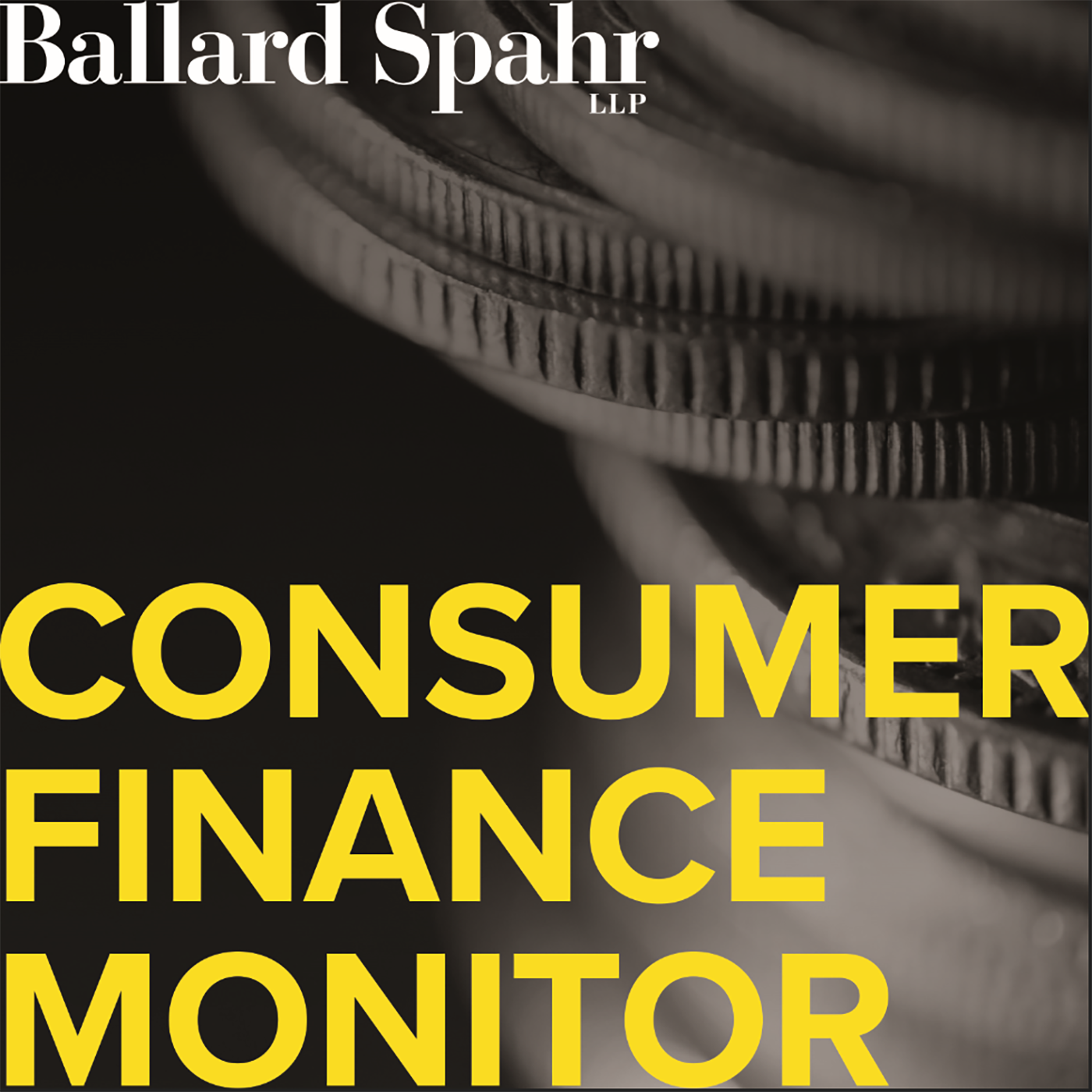
Consumer Finance MonitorCredit Card and Other Rewards Programs in the CrosshairsRewards programs drive consumer choice and activity in connection with credit cards and other financial services. The CFPB has reported the most important element by far that influences a consumer's decision to apply for a specific credit card is the rewards program associated with the card. Further, rewards can affect the consumer's choice at the point of sale as to which card to use. In this podcast episode, which repurposes a recent webinar, we explore recent trends in scrutiny of credit card rewards programs and other rewards programs by state and federal regulators and lawmakers. We also...
2024-08-0854 min
Business BetterSustainability Spotlight – A Conversation with Vicinity EnergyThis episode is part of our Sustainability Spotlight series, which highlights the sustainability efforts that businesses are making to combat climate change and other environmental challenges. This episode features a discussion with Matt O'Malley, Chief Sustainability Officer, and Jeannie Morris, Vice President of Government Affairs at Vicinity Energy. Vicinity Energy is the largest owner and operator of district energy systems in the U.S. and the first in the nation to offer carbon-free eSteam™ to rapidly decarbonize customers and achieve net zero carbon emissions across all operations. Our guests share the ways Vicinity is combating the climate cr...
2024-08-0636 min
Consumer Finance MonitorUniversal Injunctions, Associational Standing, and Forum Shopping - Their Effects on Legal Challenges to RegulationsSpecial guest Professor Alan Trammell of Washington and Lee University School of Law joins us today for a deep dive into universal injunctions and the related topics of associational standing and judicial forum shopping, and how these elements come into play in litigation challenging regulations and other government policies and actions. Recent developments in litigation critical to the consumer financial services industry have brought universal injunctions into the spotlight. We begin today's episode by providing a working definition of a universal injunction, some historical background, and examples that illustrate the benefits, effects and power of this sweeping...
2024-08-0154 min
Business BetterCyber Adviser – A Comparison of AI Regulatory FrameworksThis episode is part of our Cyber Adviser series, where we discuss emerging issues in the world of privacy and data security. Today, we’re joined by Paolo Sbuttoni, a partner at Foot Anstey with years of experience specializing in technology and data. We compare the AI regulatory landscape in the European Union, the United Kingdom, and the United States. We also provide insight on the scope of recent regulations that have been enacted in the EU and U.K., and those that will be enacted on a state by state basis in the U.S.
2024-07-3037 min
Consumer Finance MonitorBuy Now, Pay Later – Evolution, Regulation, and What You Need to Know about the CFPB Interpretive Rule Effective July 30"Buy Now, Pay Later" (BNPL) products emerged relatively recently as a new approach enabling consumers to enjoy the ability to make a purchase and then pay for it over time. Today's episode, during which we explore the evolution of BNPL products and important recent developments in BNPL regulation, is hosted by Alan Kaplinsky, former practice leader and current Senior Counsel in Ballard Spahr's Consumer Financial Services Group, and features Ballard Spahr Partners Michael Guerrero and Joseph Schuster. We first discuss the structure and mechanics of BNPL products, and the benefits they afford to consumers, merchants, and creditors...
2024-07-251h 00
Consumer Finance MonitorInterest Rate Exportation Under Attack Part IIThe 1978 landmark opinion in Marquette National Bank v. First of Omaha Service Corp held that under the National Bank Act, a national bank has the right to export the interest rate authorized by the state where the bank is located to borrowers located elsewhere. Section 521 of the Depository Institutions Deregulation and Monetary Control Act of 1980 ("DIDMCA") conferred equivalent rate exportation powers on state-chartered, FDIC-insured banks. These interest rate exportation powers (which also extend to certain fees), coupled with technological advances in recent years and the advent of "bank-model" and "banking as a service" (BaaS) programs, have created...
2024-07-1841 min
Consumer Finance MonitorInterest Rate Exportation Under Attack Part IThe 1978 landmark opinion in Marquette National Bank v. First of Omaha Service Corp held that under the National Bank Act, a national bank has the right to export the interest rate authorized by the state where the bank is located to borrowers located elsewhere. Section 521 of the Depository Institutions Deregulation and Monetary Control Act of 1980 ("DIDMCA") conferred equivalent rate exportation powers on state-chartered, FDIC-insured banks. These interest rate exportation powers (which also extend to certain fees), coupled with technological advances in recent years and the advent of "bank-model" and "banking as a service" (BaaS) programs, have created...
2024-07-1129 min
Consumer Finance MonitorCalifornia Consumer Finance Law - Hot Topics and Recent DevelopmentsCalifornia frequently is in the vanguard of consumer financial issues and legislation, foreshadowing trends that may spread to other states. Today's episode, during which we explore important hot topics and recent developments in California consumer finance law, is hosted by Ballard Spahr partner Melanie Vartabedian, and features Partners Michael Guerrero and Joel Tasca, and Of Counsel John Kimble. We first discuss what the future likely holds for proposed rules issued under the California Consumer Financial Protection Law (CCFPL) by the California Department of Financial Protection and Innovation (DFPI). The proposed rules include complex registration and reporting requirements...
2024-07-0354 min
Consumer Finance MonitorConsumer Financial Protection Bureau Wins in Supreme Court But Can the Fed Continue to Fund the CFPB Without Earnings?Special guest Alex J. Pollock, Senior Fellow with the Mises Institute and former Principal Deputy Director of the Office of Financial Research in the U.S. Treasury Department, joins us to discuss his recent blog post published on The Federalist Society website in which he urges Congress to look into the question of whether the Federal Reserve can lawfully continue to fund the CFPB if (as now) the Fed has no earnings. We begin with a review of the Supreme Court's recent decision in CFSA v. CFPB which held that the CFPB's funding mechanism does not violate the Appropriations...
2024-06-2756 min
Consumer Finance MonitorWhat Banking Leaders Need to Know About the U.S. Supreme Court Ruling That the CFPB's Funding Mechanism is Constitutional Part IIOn May 16, 2024, the U.S. Supreme Court ruled that the CFPB's funding mechanism does not violate the Appropriations Clause of the U.S. Constitution. This two-part episode repurposes a recent webinar. In Part II, we first discuss the CFPB's launch of Fair Credit Reporting Act rulemaking, proposed rule to supervise larger payment providers, proposed rule on personal financial data rights, and interpretive rule on buy-now-pay-later. We next discuss the operation of the Congressional Review Act and its potential impact on final CFPB rules if the November 2024 election results in a change in Administrations. We then discuss the impact of t...
2024-06-2033 min
Consumer Finance MonitorWhat Banking Leaders Need to Know About the U.S. Supreme Court Ruling That the CFPB's Funding Mechanism is Constitutional Part IOn May 16, 2024, the U.S. Supreme Court ruled that the CFPB's funding mechanism does not violate the Appropriations Clause of the U.S. Constitution. This two-part episode repurposes a recent webinar. In Part I, we first discuss the SCOTUS decision, the status of the CFPB's payday lending rule that was at issue in the underlying case, and a potential new challenge to the CFPB's funding that has been the focus of recent attention. We then discuss four cases still pending before SCOTUS in which the decisions could impact the CFPB. Next, we discuss the pending lawsuits challenging the CFPB's...
2024-06-1352 min
Consumer Finance MonitorDid the Supreme Court Hand the CFPB a Pyrrhic Victory?Special guest Professor Hal Scott of Harvard Law School joins us today as we delve into the thought-provoking question of whether the Supreme Court's recent decision in the landmark case of CFSA v. CFPB really hands the CFPB a winning outcome, or does the Court's validation of the agency's statutory funding structure simply open up another question: whether the CFPB is legally permitted to receive funds from the Federal Reserve if (as now) the Fed has no earnings. In other words, was the outcome in CFSA v. CFPB an illusory Pyrrhic victory for the CFPB? And, what happens next?
2024-06-0643 min
Consumer Finance MonitorAn Insider's View of the CFPBOur special guest this week is John Tonetti. After decades as an industry risk executive, Mr. Tonetti joined the Consumer Financial Protection Bureau (CFPB), where he worked for many years in roles including Debt Collection Program Manager, senior policy analyst, and internal consultant on numerous issues including debt collection and risk management policies and examinations. In this episode, Mr. Tonetti shares his perspectives from the point of view of an agency insider who served under every CFPB director and acting director in office to date. We first discuss the pitfalls of the CFPB's leadership structure, which gives...
2024-05-3059 min
Consumer Finance MonitorBanks and Their Customer Relationships: What is the Appropriate Role of Bank Regulators?Our special guests are Professor Dru Stevenson, South Texas College of Law in Houston, and Brian Knight, Senior Research Fellow, Mercatus Center at George Mason University. In this episode, we first discuss the history of "Operation Chokepoint," the Obama-era initiative in which the FDIC and other federal banking agencies targeted banks serving payday lenders and companies engaged in other "disfavored" industries. We then devote the remainder of the episode to a discussion of what is the appropriate role of bank regulators with regard to banks' customer relationships, with our guests presenting opposing views on how regulators should use their a...
2024-05-2358 min
Consumer Finance MonitorA Discussion of Industry and Consumer Perspectives on Mass ArbitrationOur special guest is Professor Richard Frankel of Drexel University Thomas R. Kline School of Law and the author of a recent article on mass arbitration. In this episode, we first discuss what mass arbitration is, how it relates to class action lawsuits, and the role of public enforcement. We then discuss the industry and consumer positions on the use of mass arbitration and the empirical study conducted by Prof. Frankel for his article. We conclude with a discussion of steps that companies using arbitration provisions in their consumer agreements can take to respond to the use of mass...
2024-05-161h 02
Consumer Finance MonitorA Close Look at the Consumer Financial Protection Bureau's Proposal to Supervise Large Nonbank Providers of Digital Wallets and Payment AppsOur special guest is Brian Johnson, Managing Director of Patomak Global Partners and former CFPB Deputy Director. In Nov. 2023, the CFPB issued a proposed rule to supervise nonbank companies that qualify as larger participants in a market for "general-use digital consumer payment applications." We first discuss the CFPB's authority to supervise nonbank entities considered to be "a larger participant of a market for other consumer financial products or services" and its previous use of that authority. We look next at how the CFPB has defined the relevant market in its current proposal and its rationale for the proposal. We t...
2024-05-0953 min
Business BetterCyber Adviser – Your Data, My Headache: Consumer Health Data LawsThis episode is part of our Cyber Adviser series, where we discuss emerging issues in the world of privacy and data security. Today, our lawyers discuss new state consumer health data laws in Connecticut, Nevada, and Washington, highlighting the laws’ scope, obligations for regulated entities, and enforcement mechanisms. Greg Szewczyk, Leader of Ballard Spahr’s Privacy and Data Security Group, and Kelsey Fayer, an Associate in the Privacy and Data Security Group, host the discussion.
2024-03-2618 min
Business BetterSustainability Spotlight – A Conversation with AramarkThis is the first episode in our new Sustainability Spotlight series, highlighting the sustainability efforts that businesses are taking to combat climate change and other environmental challenges. This episode features a discussion with Alan Horowitz, Vice President of Sustainability at Aramark, a leading global provider of food and facilities services. Alan provides insight on Aramark’s “Be Well. Do Well.” ESG platform. We also discuss Aramark’s goal to reach net-zero emissions by 2050, and what they’re focusing on in order to reach this goal. Brendan K. Collins, a partner in Ballard Spahr’s Philadelphia Office and l...
2024-03-1931 min
Business BetterTax Audits, Investigations, and Global Enforcement: A Conversation with IRS Special Agent Jonathan SchnatzIn this episode, we are joined by Special Agent Jonathan Schnatz, Senior Analyst with IRS Criminal Investigation. Special Agent Schnatz will discuss his work with an international law enforcement and tax compliance group, and how that work directly impacts U.S. businesses and individuals. Peter Hardy and Chris Jones, co-leaders of Ballard Spahr's Tax Controversy team, are joined by team member Siana Danch to lead this discussion.
2024-03-0533 min
Business BetterCyber Adviser – Financial Services 2024 Privacy and Cybersecurity PreviewThis episode is part of our Cyber Adviser series, where we discuss emerging issues in the world of privacy and data security. The privacy and cybersecurity landscape is evolving in the financial sector, from more specific data security reporting requirements, to potential data subject rights and the use of artificial intelligence. Today, our lawyers will highlight key developments and provide practical insights on how to stay ahead of the regulatory, litigation, and hacker threats. Greg Szewczyk, Leader of Ballard Spahr’s Privacy and Data Security Group, and Sarah Dannecker, an Associate in the Privacy and Da...
2024-02-0625 min
Business BetterUnderstanding the Federal Reserve Board Proposal to Lower Interchange Fee Cap for Debit Card TransactionsOur special guest is Zarik Khan, Founder of Finsolute Advisors. In October 2023, the Federal Reserve Board issued a proposal to lower the maximum interchange fee that a large debit card issuer can receive for a debit card transaction. We first look at the roles of the various parties involved in a typical transaction in which a consumer uses a debit card to make a purchase from a merchant and the various fees imposed in connection with the transaction. We then discuss how the current debit interchange fee cap contained in the Fed’s final rule implementing the Durbin Amendment (Re...
2024-01-2559 min
Business BetterIs DEI at Risk? Considerations on the US Supreme Court Ruling Against Affirmative Action ProgramsIn this episode, we discuss the recent US Supreme Court ruling in the Students for Fair Admissions Inc.'s lawsuits against Harvard University and the University of North Carolina, which challenged the constitutionality of their race conscious admission policies. We'll consider the potential implications across multiple settings, from university admissions policies, to workplace and other DEI programs. Bill Rhodes, a Partner in Ballard Spahr’s Public Finance Group and Leader of the firm’s Education Industry Team, hosts the discussion. Bill is joined by Brian Pedrow, a Partner in our Labor and Employment Group, and Co-Leader of the...
2023-07-1132 min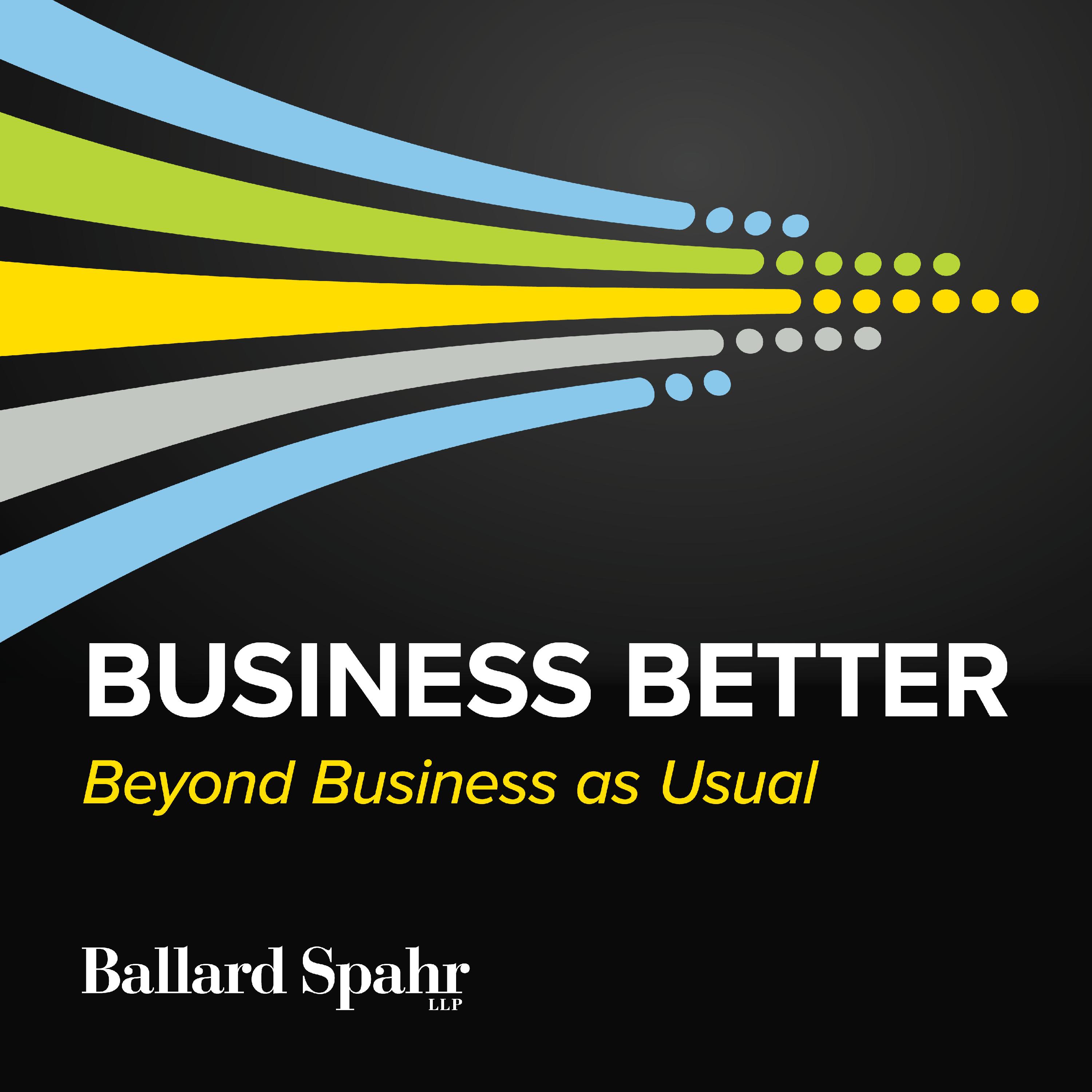
Business BetterCyber Adviser – An Overview of Artificial Intelligence in the U.S. and EU Regulatory LandscapeThis episode is part of our Cyber Adviser series, where we discuss emerging issues in the world of data privacy and security. The emergence of tools like ChatGPT has demonstrated the tremendous business potential for artificial intelligence. At the same time, businesses need to be aware of the growing patchwork of laws and regulations in the U.S. and EU governing the development and use of AI. Our lawyers will provide an overview of the current regulatory landscape for AI in the U.S. and EU and identify some best practices for businesses to employ as they...
2023-03-3046 min
Business BetterCyber Adviser – 2023 Preview for Privacy and Data SecurityThis episode is part of our Cyber Adviser series, where we discuss emerging issues in the world of data privacy and security. 2022 proved to be a historic year for privacy and data security, and 2023 is likely to follow suit. With privacy compliance deadlines looming under three state laws, a surge in data privacy litigation, new federal cyber-regulations, new state laws governing children’s data, and new EU legislation regulating digital services – privacy lawyers will be busy this year. We discuss the main privacy issues that are likely to dominate headlines in 2023. Phil Yannella and Greg Szew...
2023-02-1438 min
Business BetterInvesting in Communities: A Conversation with Marcus Randolph, CEO of Invest NewarkIn today’s episode, we’re joined by special guest Marcus Randolph, CEO and President of Invest Newark. Invest Newark is a nonprofit development agency who work to propel the City’s strong and diverse economy, build vibrant communities, and create opportunities for all residents of Newark. Invest Newark supports small, women and minority-owned businesses, invests in world-class internet service, spurs real estate development and executes economic development activities to produce and sustain economic growth, generate jobs and create wealth for the citizens of Newark. Krishana Pleasant, Of Counsel in Ballard Spahr's New York office, hosts the conver...
2023-01-0330 min
Business BetterCyber Adviser – The Colorado Privacy Act and Draft RulesThis episode is part of our Cyber Adviser series, where we discuss emerging issues in the world of data privacy and security. With its draft rules, Colorado has set forth a new model for state privacy laws. While there are many areas that are interoperable with the California model, the Colorado draft rules include important differences, as well as rules on topics that have been notably absent from California’s draft rules. We discuss the highlights of the Colorado draft rules, differences with California, and practical steps for developing a comprehensive compliance plan for all of the up...
2022-12-0637 min
Business BetterCyber Adviser – Assessing the Surge in Wiretap LitigationThis episode is part of our Cyber Adviser series, where we discuss emerging issues in the world of data privacy and security. In the past several months, plaintiffs lawyers have filed dozens of class action lawsuits under state wiretap laws, some of which provide for statutory damages of $5,000 or more per occurrence. The lawsuits focus on the use of chatbots, “session replay” software, and tracking code embedded in websites. Plaintiffs contend these tools enable the surreptitious sharing of personal information with third parties and are illegal wiretaps. In this episode, we discuss the reason for this surge in l...
2022-10-2625 min
Business BetterConversations with Women in Finance, with Special Guest Natasha Holiday from RBC Capital MarketsThis episode is part of our Women in Finance series, and features an interview with Natasha Holiday, Managing Director at RBC Capital Markets with a focus on U.S. public infrastructure finance. Ms. Holiday talks about her career journey into finance, the current state of the market, and navigating the opportunities and challenges that come with integrating family life with a hybrid work environment in a post-George Floyd world. Emilie Ninan, a Partner in our Wilmington, Delaware, and Washington, DC offices, and co-chair of Ballard Spahr’s Finance department, hosts the conversation.
2022-10-0438 min
Business BetterBASE – A Legal Accelerator That Has Been Boosting Dorm Room Startups For The Past DecadeIn today’s episode, we celebrate the 10th anniversary of the Ballard Academy for Student Entrepreneurs (BASE) program, an in-house legal accelerator that Ballard Spahr developed in 2013 to support student owned and operated ventures. We’re joined by the founders of mental wellness platform NeuroFlow, a fast-growing Philadelphia based startup, who participated in the BASE 3.0. Christopher Molaro, CEO, and Adam Pardes, COO, discuss starting a company during graduate school, leveraging BASE as a resource, and how they are continuing to grow the company today. Kimberly Klayman, a Partner in our Philadelphia office, hosts the conversation.
2022-09-2725 min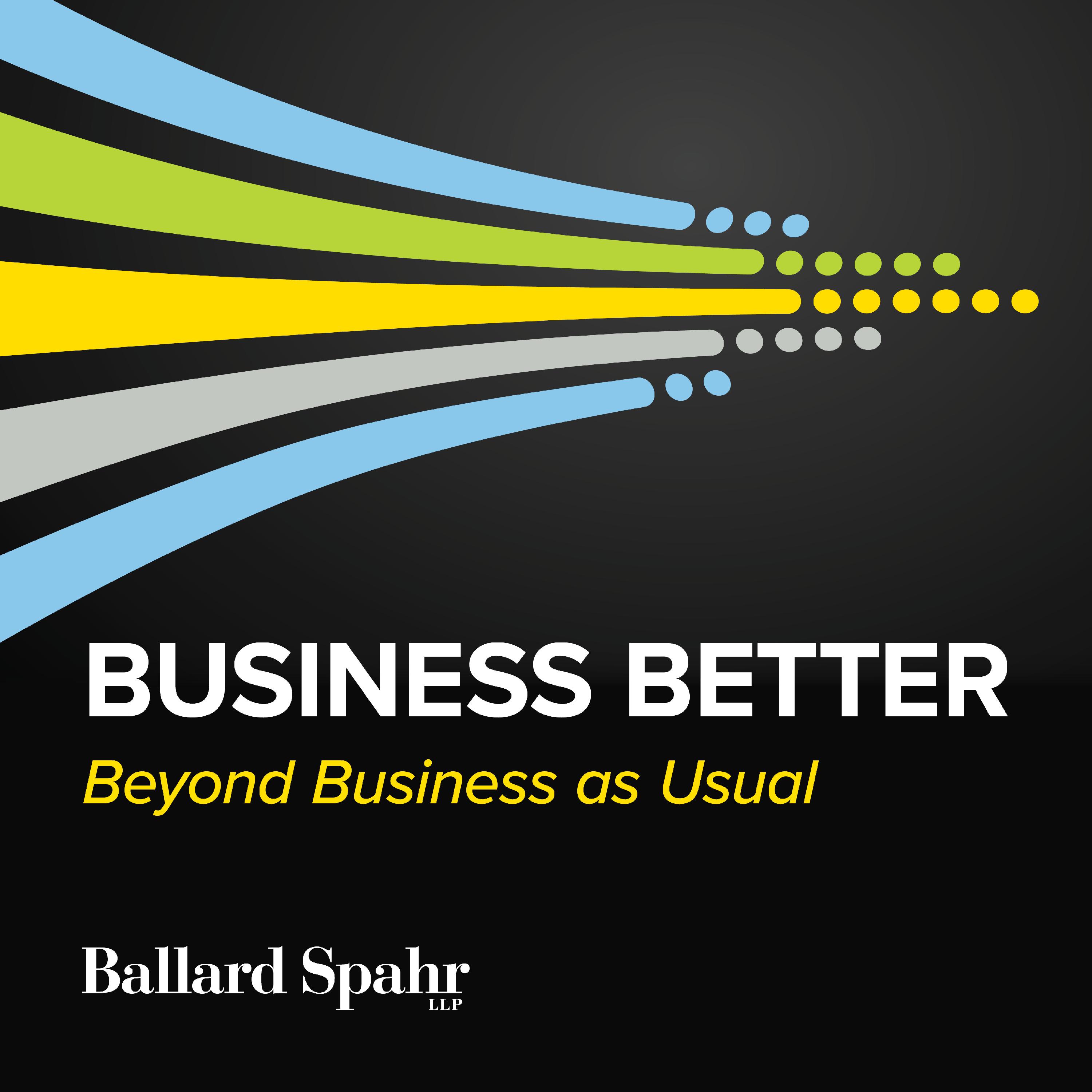
Business BetterRespect the Razorblade: How to Protect Your IP When Your Business’s Business Is Repeat CustomersIn this episode, we discuss how your intellectual property can be leveraged to maximize the profitability of nonconsumable devices and their complementary consumable products. While profits can be made via the initial sale of larger items—like printers, video game consoles, or razor handles—even greater profits are possible with the repeat sale of complementary consumable items—like ink cartridges, video games, and razor blades. Establishing a strong IP portfolio that captures both the device and its complement is crucial to the profitability of the product pair and your company’s success. Ballard Spahr intellectual property...
2022-07-1918 min
Business BetterSupply Chain Disruptions with Special Guest Benjamin Siegrist, Director of Infrastructure, Innovation and Human Resources Policy at the National Association of ManufacturersThis is the first episode in our new series “Supply Chain Disruptions,” where we explore how supply chain issues are affecting businesses everywhere, and when the flow of goods and services may settle into a new normal. In this episode, Ben Siegrist shares his knowledge of port shipments, trucking and driver shortages, and how Congress, the Biden Administration, and other leaders are working together to address the effects of disruption. Ben also reveals recent survey information from NAM membership about how long the disruption could continue and what the future may hold. Brendan Collins, a Ball...
2022-05-1735 min
Business BetterTrauma-Informed Investigations, Part Four: Full DisclosureThis is episode four of the “Trauma Informed Investigations” series, where we follow a fictitious story to address the legal and human issues that arise in an organization when confronted with allegations of sexual abuse. In today’s episode, we discuss the process of conducting an internal investigation and retaining outside counsel, notification processes, and mandatory reporting and communications with law enforcement. Leading the discussion is my Ballard Spahr colleague Jill Steinberg, a Partner in Ballard’s Philadelphia Office. Jill is joined by Katharine Manning. Katharine is the author of “The Empathetic Workplace: Five Steps to a Compassion...
2022-05-1038 min
Business BetterTrauma-Informed Investigations, Part Three: The Brain and TraumaThis is episode three of the “Trauma-Informed Investigations” series. Today’s episode features a discussion on the impacts that trauma can have on the brain, with special guest Anne DePrince, a clinical psychologist and professor of psychology at the University of Denver and author of “Every 90 Seconds: Our Common Cause Ending Violence against Women”. Speaking with Ms. DePrince is my Ballard Spahr colleague Jill Steinberg, a Partner in Ballard’s Philadelphia Office; and Katharine Manning, author of “The Empathetic Workplace: Five Steps to a Compassionate, Calm, and Confident Response to Trauma on the Job,” and the President of Blackbird DC.
2022-04-1930 min
Business BetterA Conversation with Liz Bentley, Founder and President of Liz Bentley AssociatesToday's episode features a conversation with Liz Bentley, founder and President of Liz Bentley Associates, a consulting firm specializing in leadership development programs. Ms. Bentley discusses her own background and career path, the role and importance of outside interests, dealing with failure, developing self-discipline, courage and confidence, how to advance in one’s career, and some thoughts on the return to the workplace. Speaking with Ms. Bentley is Emilie Ninan, a Partner at the firm and Co-Chair of Ballard Spahr’s Finance Department.
2021-10-0735 min
Business BetterConversations with Women Leaders in Finance, with Special Guest Mary DiMartino from J.P. MorganIn this series, we profile women in finance to learn about their leadership roles in financial services and capital markets. This episode features an interview with Mary DiMartino, Executive Director at J.P. Morgan Securities, where she focuses on public finance. Ms. DiMartino talks about her background and career path, the kinds of projects she works on, her experience in recruiting, and the impact of the pandemic on the work environment and the use of technology. Speaking with Ms. DiMartino is Emilie Ninan, Co-Chair of Ballard Spahr’s Finance Department.
2021-09-1628 min
Business BetterCongress Overrides the OCC’s True Lender Rule: What Are the Risks for Banks and Their Loan Program Nonbank Partners?The OCC’s true lender rule was intended to create a bright line test for when a national bank or federal savings association should be considered the “true lender” in the context of third party partnerships but Congress overturned the rule. After reviewing the relevant background, we examine the Congressional override’s implications for future federal true lender rulemaking and its impact on existing law, key federal and state court challenges and decisions, state legislative and administrative developments, and risk mitigants for bank/nonbank partnerships, including potential loan program structures. Alan Kaplinsky, Ballard Spahr Senior Counsel, hosts the conv...
2021-09-091h 01
Business BetterA Conversation with Jane Hyun, Founder and President of Hyun & AssociatesToday’s episode features a conversation with Jane Hyun, leadership strategist and author, and Founder and President of Hyun & Associates, a professional training and coaching firm. Ms. Hyun talks about her background and career path, her books, and her thoughts on the challenges and experience of Asian-Americans striving for success in the corporate environment. Speaking with Ms. Hyun is Emilie Ninan, a Partner at the firm and Co-Chair of Ballard Spahr’s Finance Department.
2021-07-2835 minBusiness BetterThe New BSA Whistleblower Law: What You Need to KnowToday’s episode features a discussion of the new whistleblower provisions in the Anti-Money Laundering Act of 2020. We’ll discuss the types of businesses covered, who can be a whistleblower under the Act, the increased incentives now provided, new protections against retaliation, the impact of a whistleblower being involved in the conduct, and practical advice for affected institutions. Peter Hardy, co-practice leader of the firm’s Anti-Money Laundering Team is joined by Ballard Spahr attorneys Meredith Dante and Diana Joskowicz.
2021-04-2335 minBusiness BetterMarijuana Use in the Workplace: What Employers Need to KnowToday’s episode is a conversation on the legalization of marijuana in certain states and its impact on the workplace. Ballard Spahr Labor and Employment attorneys Jay Zweig, Emily Daher, and Joseph Wiltse review what they’re seeing in their specific states and discuss other topics, including: what employers can and can’t do in regulating marijuana use by their employees, guidelines for the implementation of drug testing policies, how to deal with so-called “safety sensitive” positions, and the interplay of state and federal law.
2021-04-1233 minBusiness BetterOh the Places You’ll Go: A Discussion Regarding the American Jobs PlanRecently, President Biden announced a historic and ambitious plan to invest in infrastructure, the biggest investment in infrastructure in over five decades. To discuss the proposed package Ballard Spahr Partner BJ Clark is joined by three guests with extensive knowledge and experience in the space: Gov. Ed Rendell, the former Governor of Pennsylvania and former Mayor of Philadelphia, Brian Kirby, General Counsel at Sacyr, a large international infrastructure company, and John Smolen, Of Counsel in Ballard Spahr’s P3/Infrastructure Group in the firm’s Baltimore Office.
2021-04-0859 minBusiness BetterDissecting the ESG Landscape for Companies and Investors with Zally Ahmadi from D.F. KingIn this episode, we highlight Environmental, Social and Governance (ESG) concerns from the perspective of companies and investors, including recent trends in ESG investing, the impact of the pandemic, and the ESG issues that have been the focus of companies, boards, shareholders and proxy advisory firms in recent years. Ballard Spahr attorneys Mary Mullany and Jaryn Fields are joined by Zally Ahmadi, who oversees the Corporate Governance & Executive Compensation advisory services at D.F. King.
2021-03-1540 minBusiness BetterThe Impact of COVID-19 on the Executive Liability Landscape with HUB InternationalDoug Christian, leader of Ballard Spahr’s Insurance Practice Group is joined by Adrian Atilano and Dave Garrigus from insurance brokerage firm HUB International. Adrian and Dave lead HUB’s executive liability practice and, along with Doug, discuss how the COVID-19 pandemic has impacted the management liability landscape. After summarizing the current market, the group touches on the main issues underwriters are paying attention to at the moment and how to maximize coverage in a cost-effective manner.
2021-02-2541 minBusiness BetterThe Next Wave of Employer LiabilityOn this episode, Ballard Spahr Partner Louis Chodoff leads a discussion with his Labor and Employment attorney colleagues Karli Lubin and Tara Humma. The group discusses the various liability issues that may arise as employers work to bring employees back to the physical workplace, including claims about workplace safety, vaccination policies, overtime claims arising from work from home, and activity created by the new Biden administration’s Labor and Employment Policies.
2021-02-1044 min